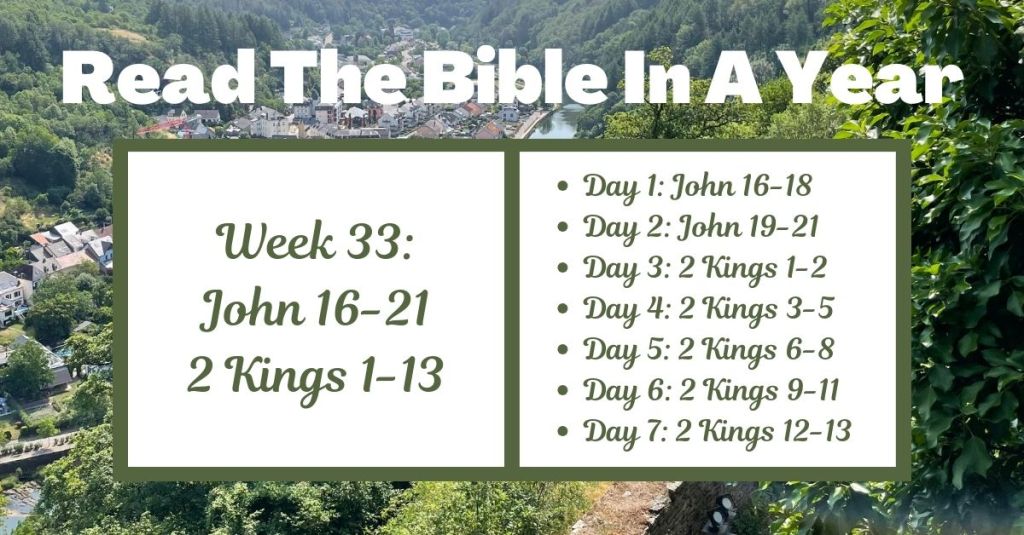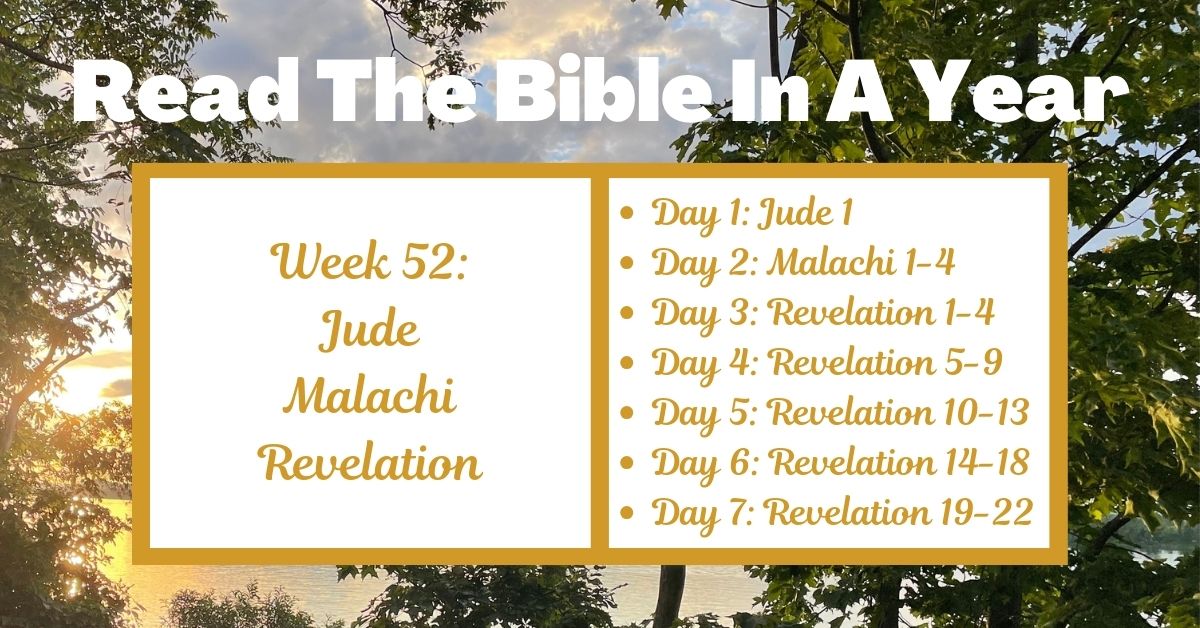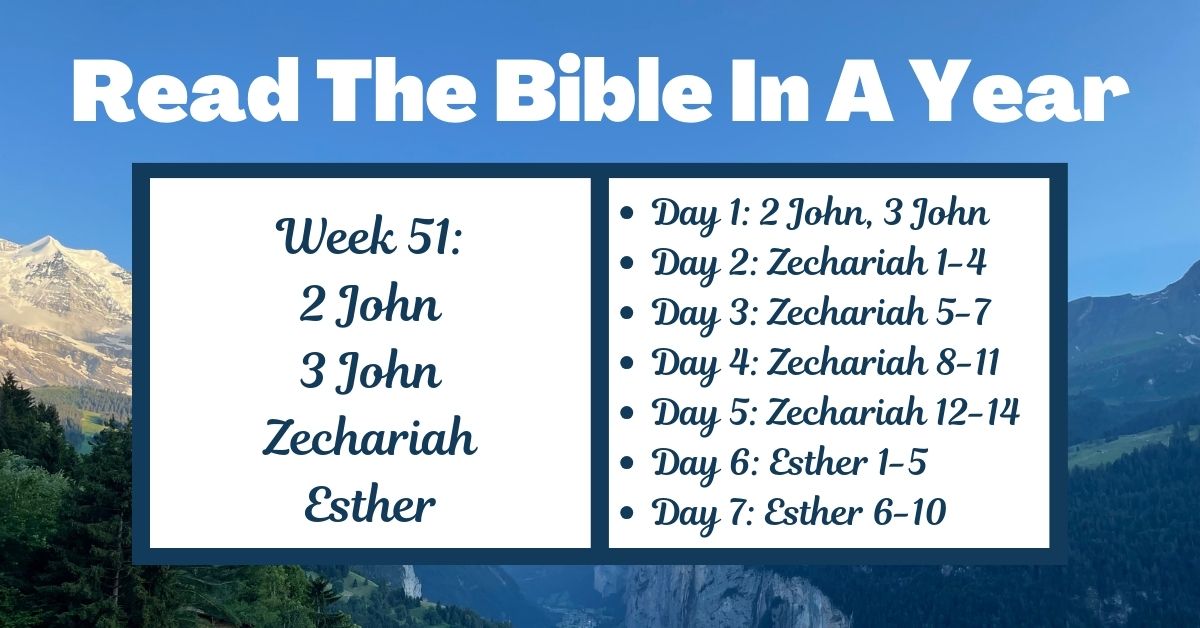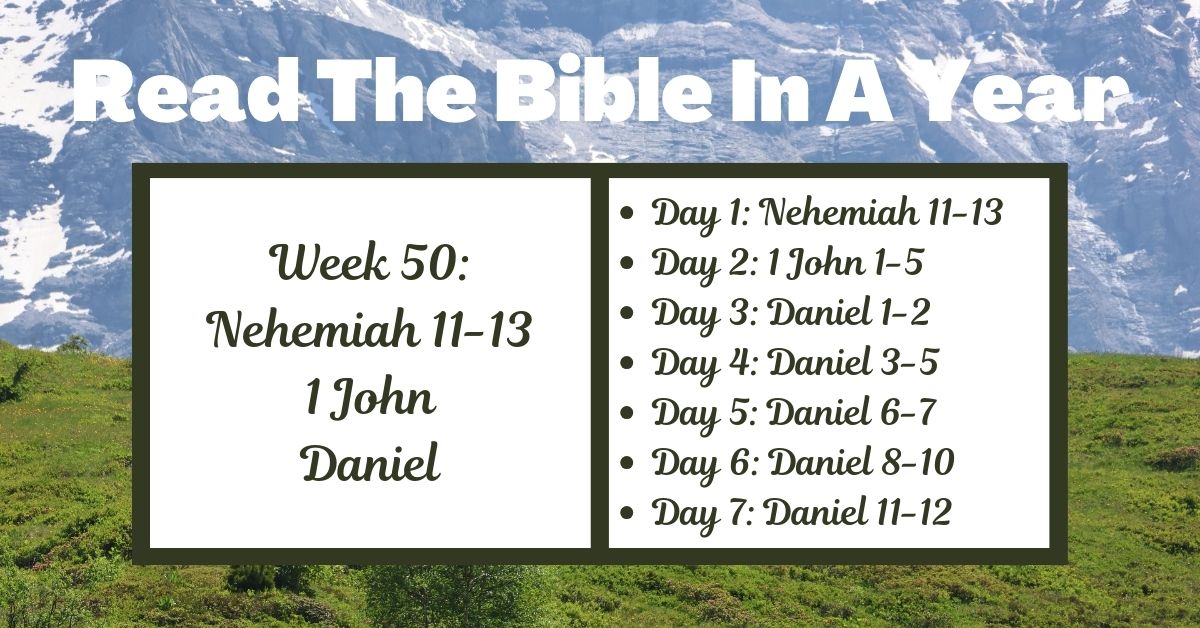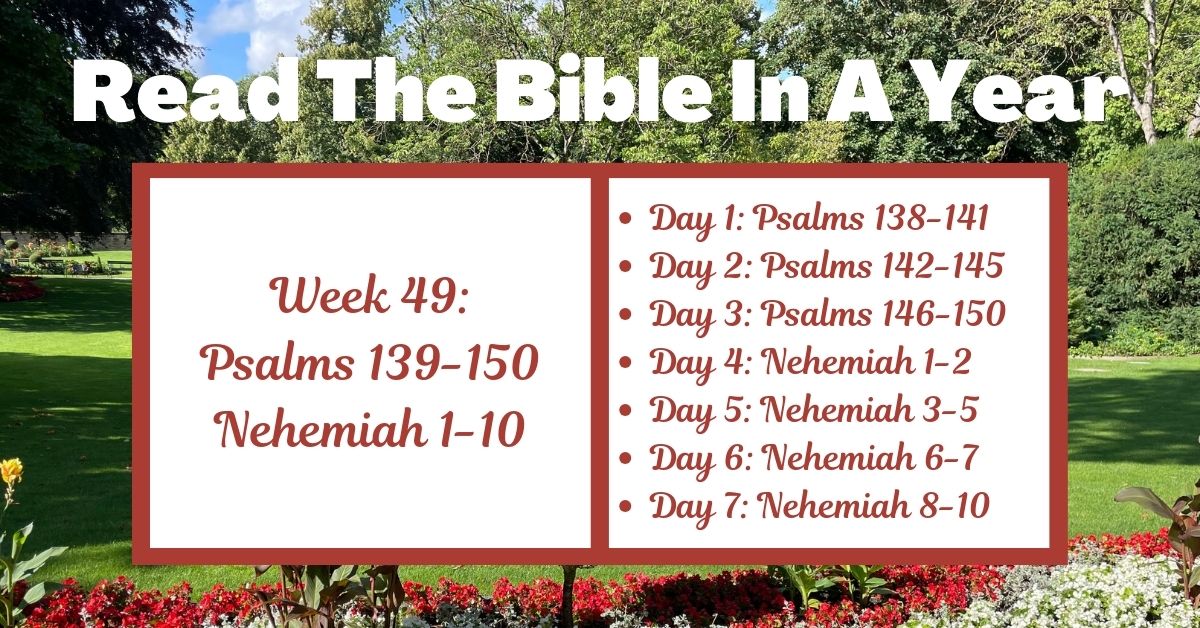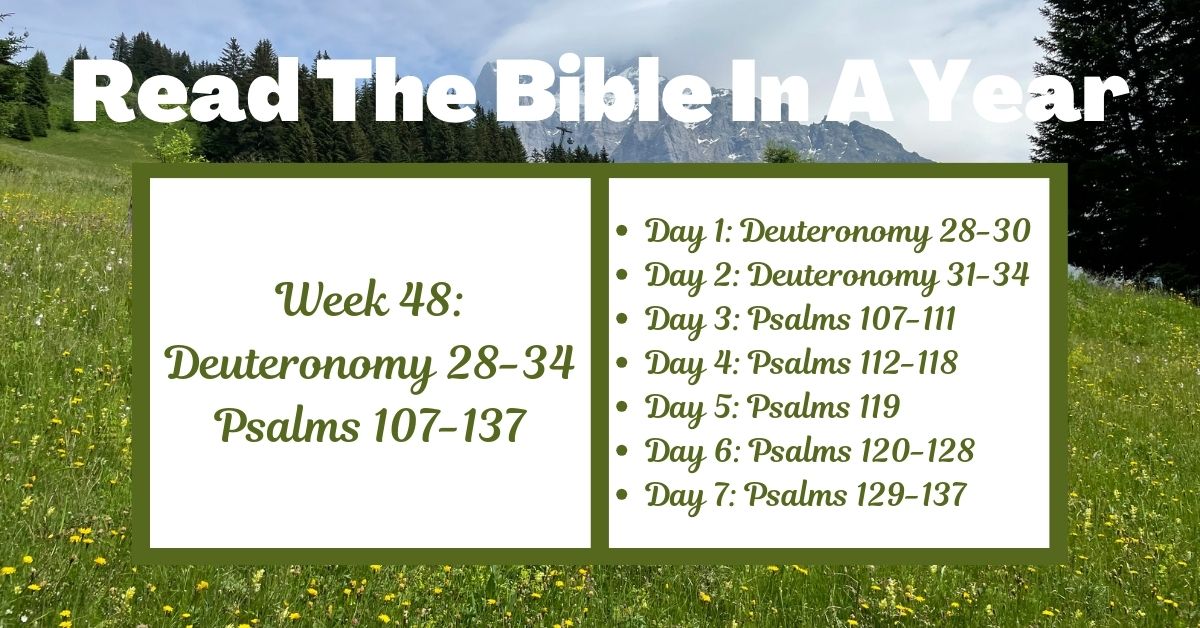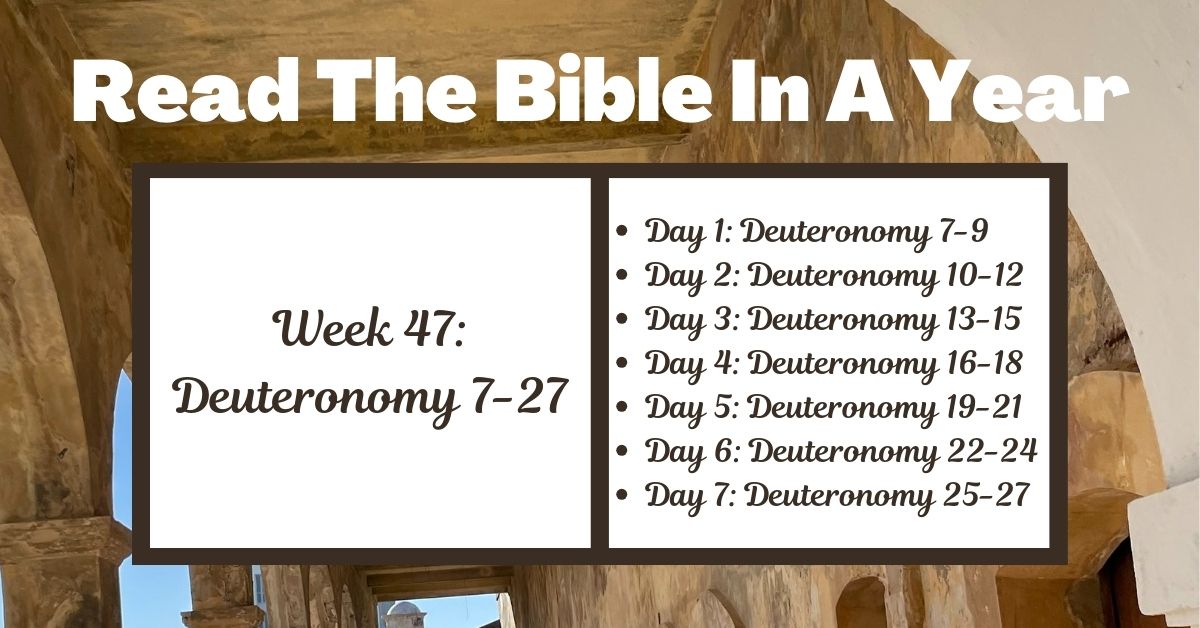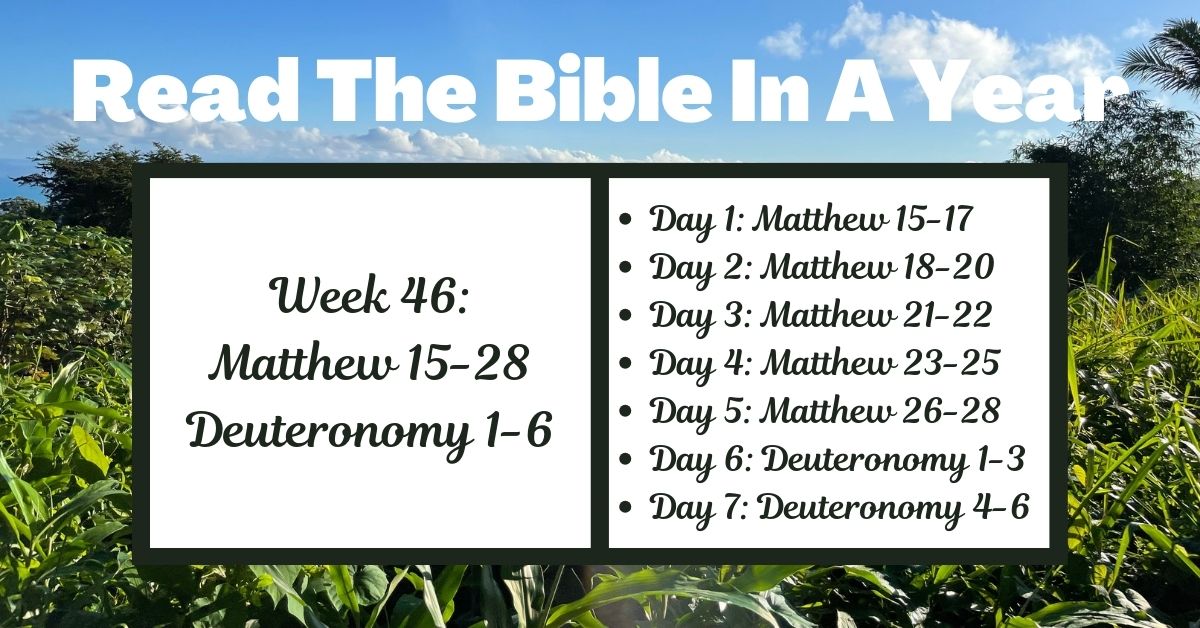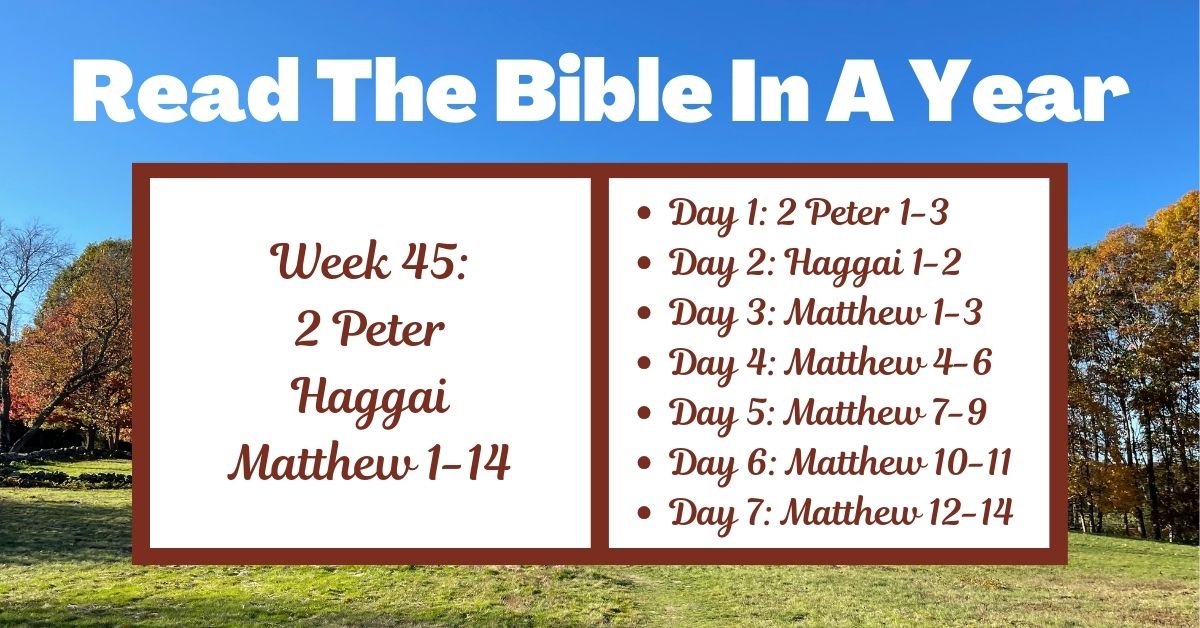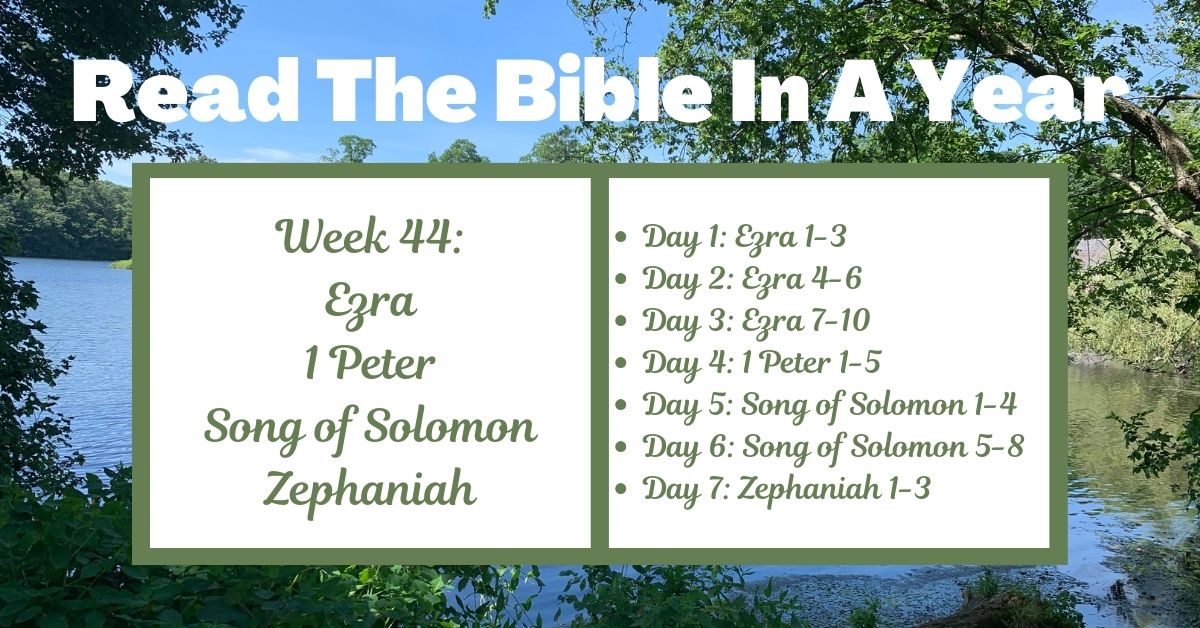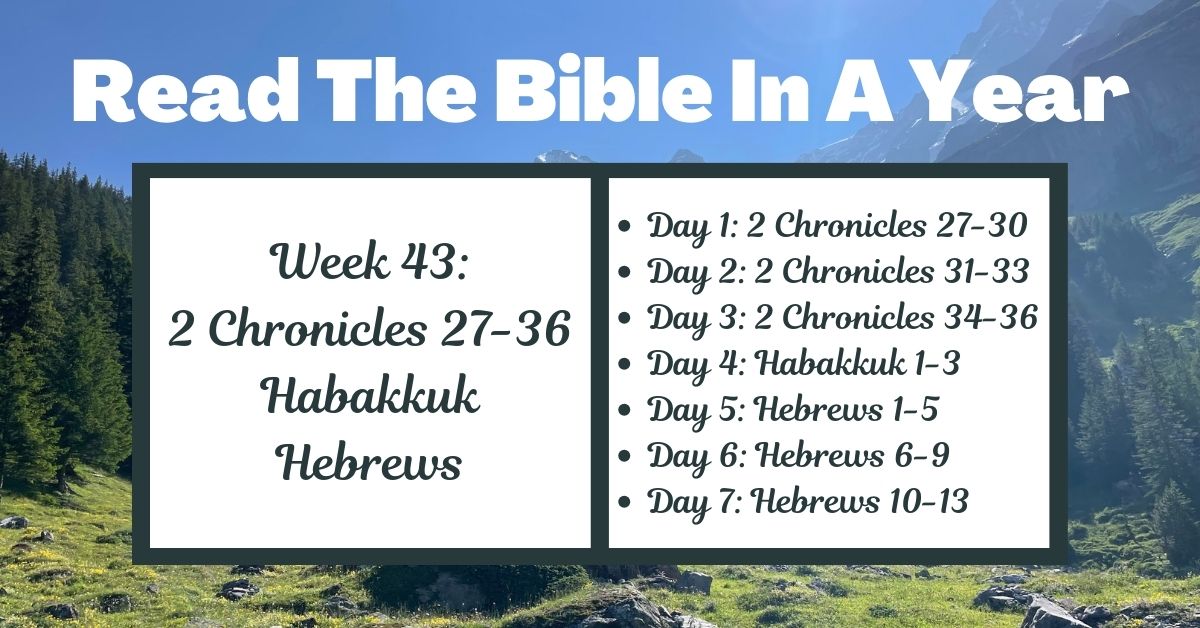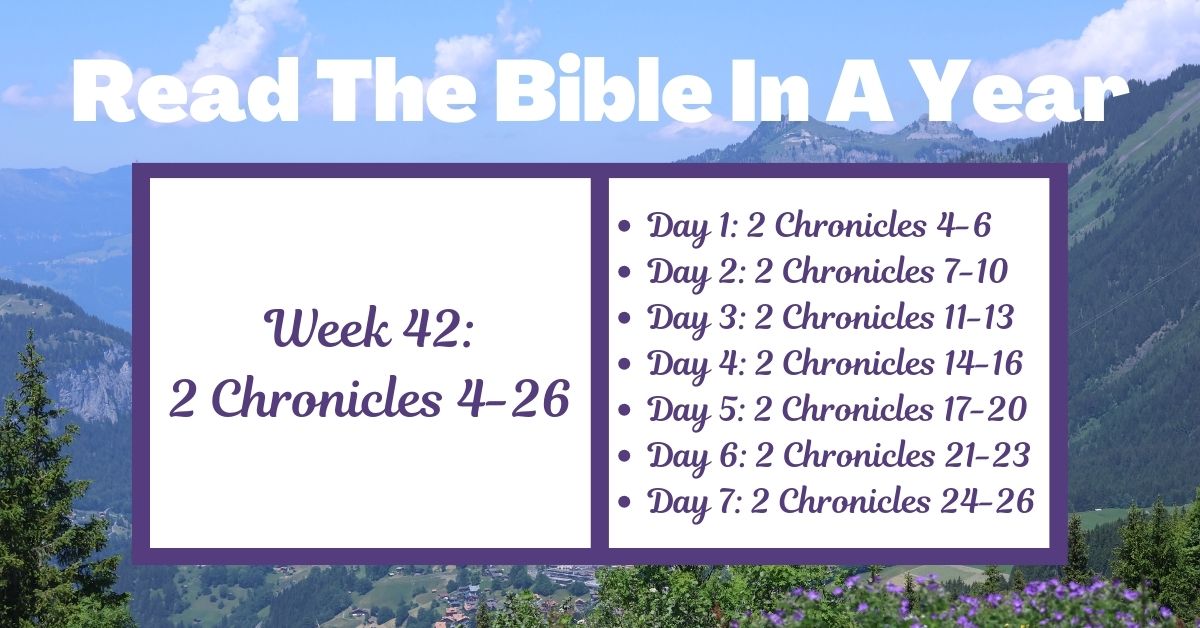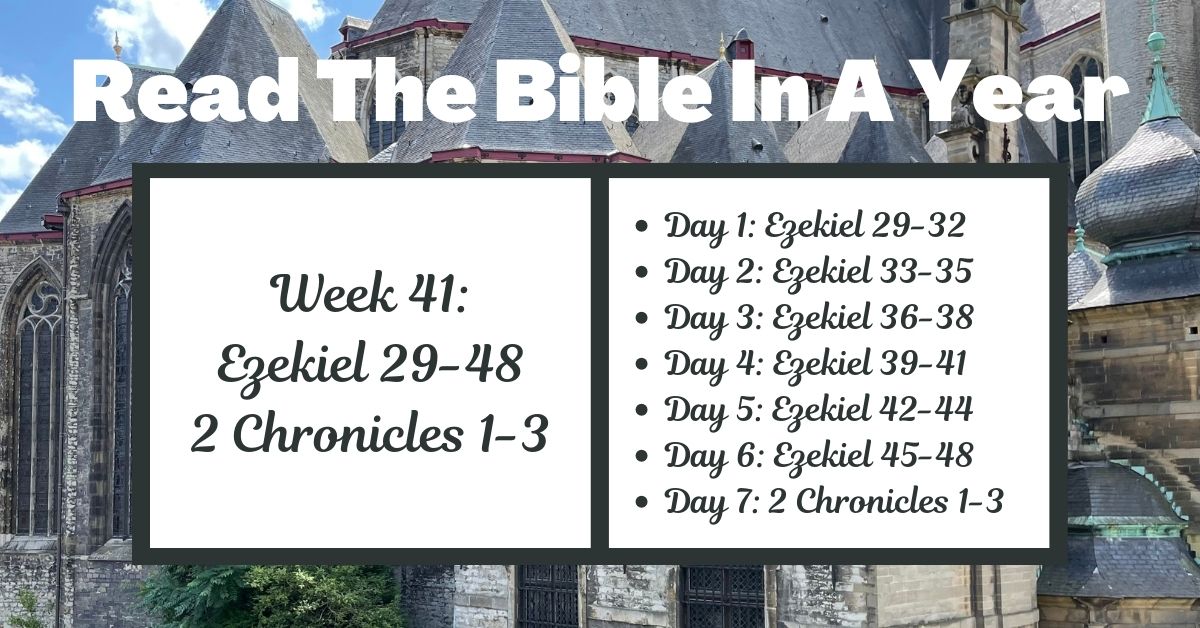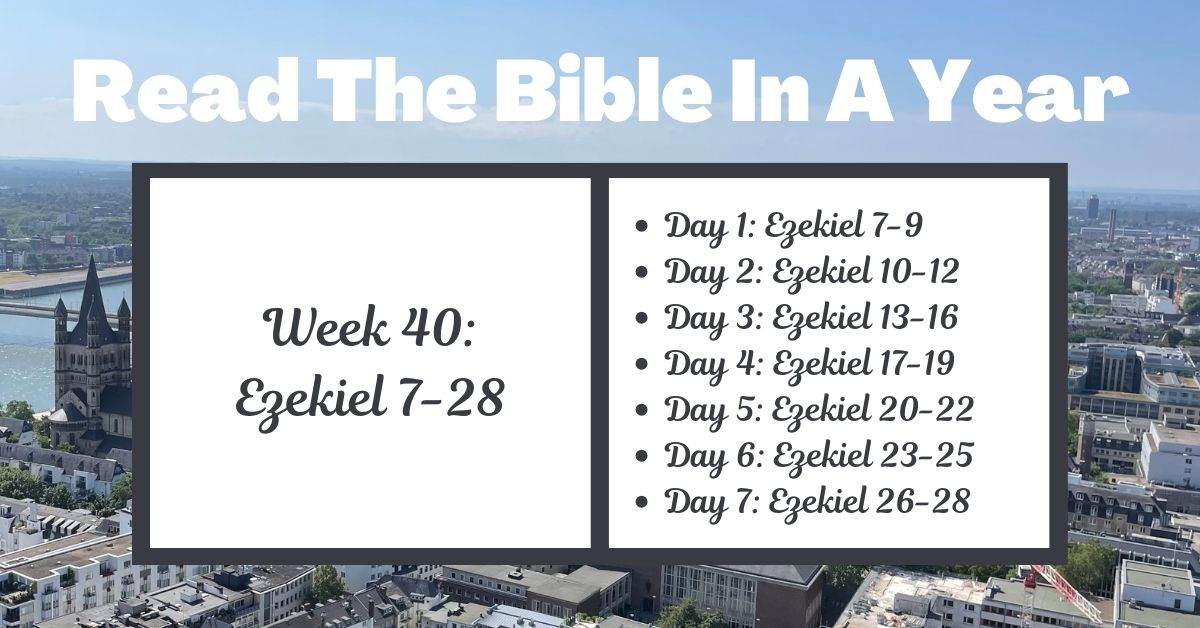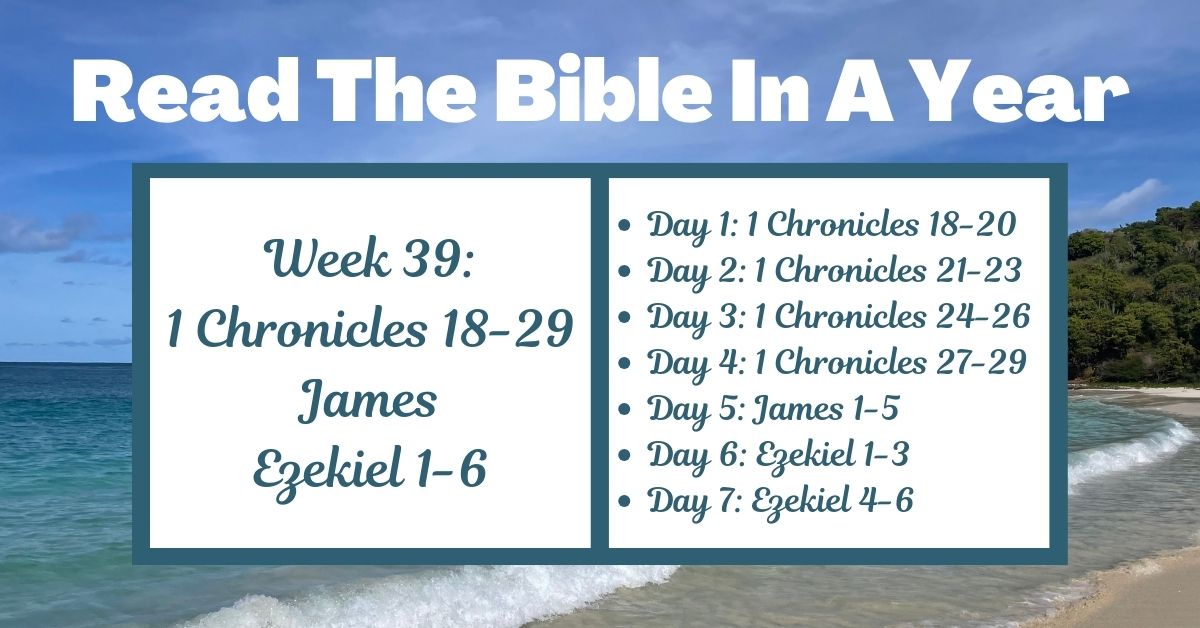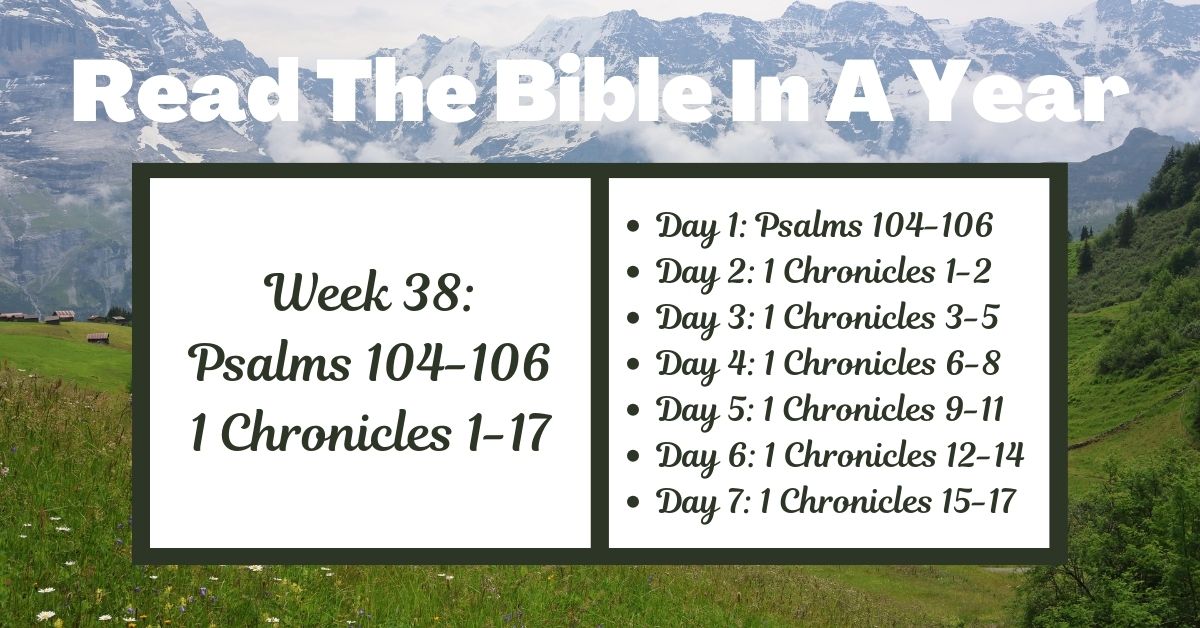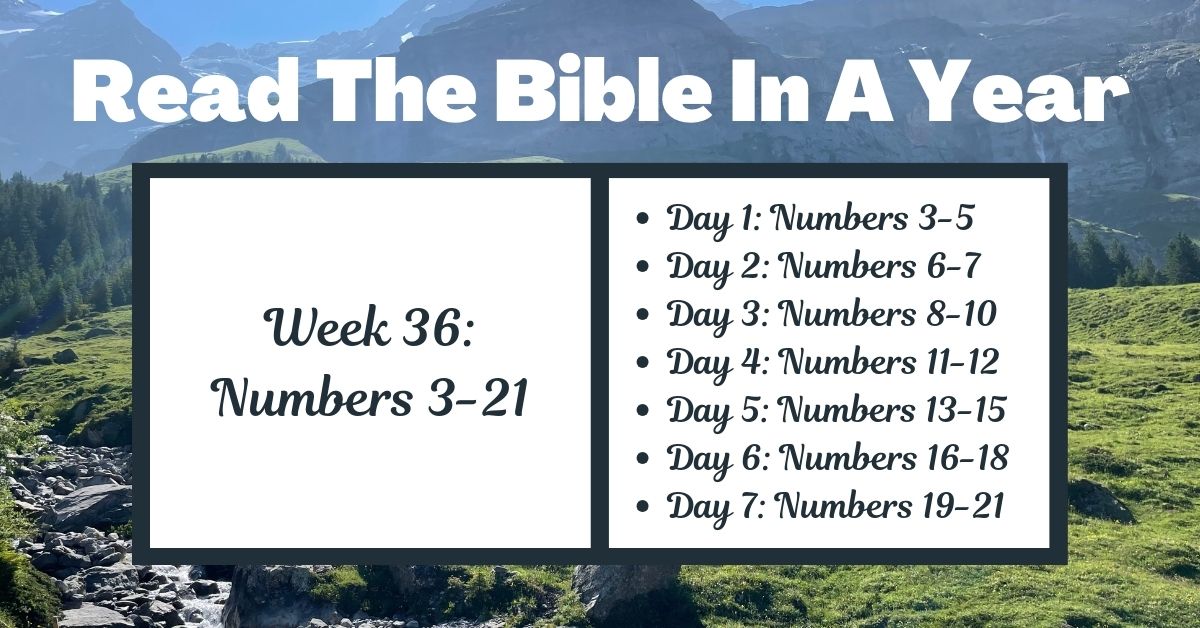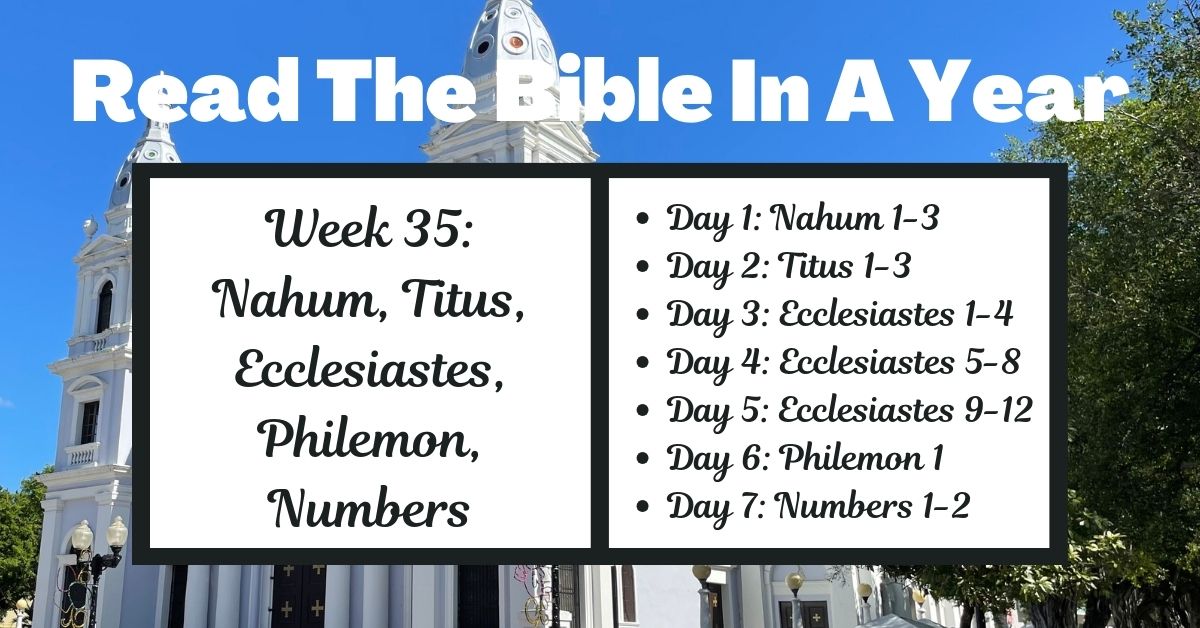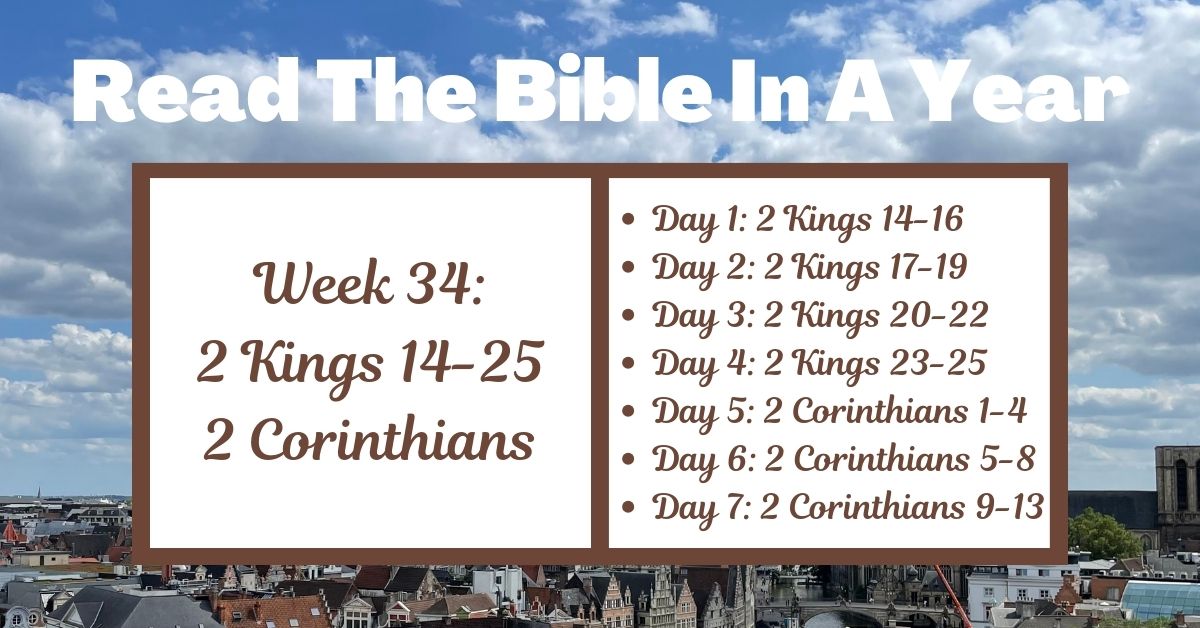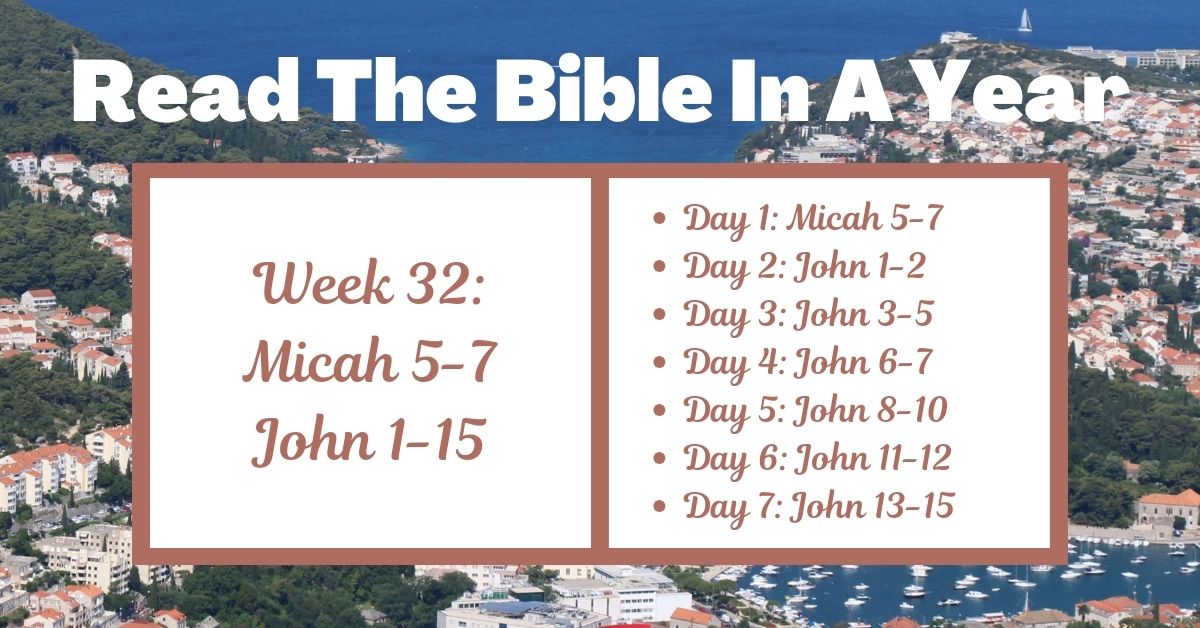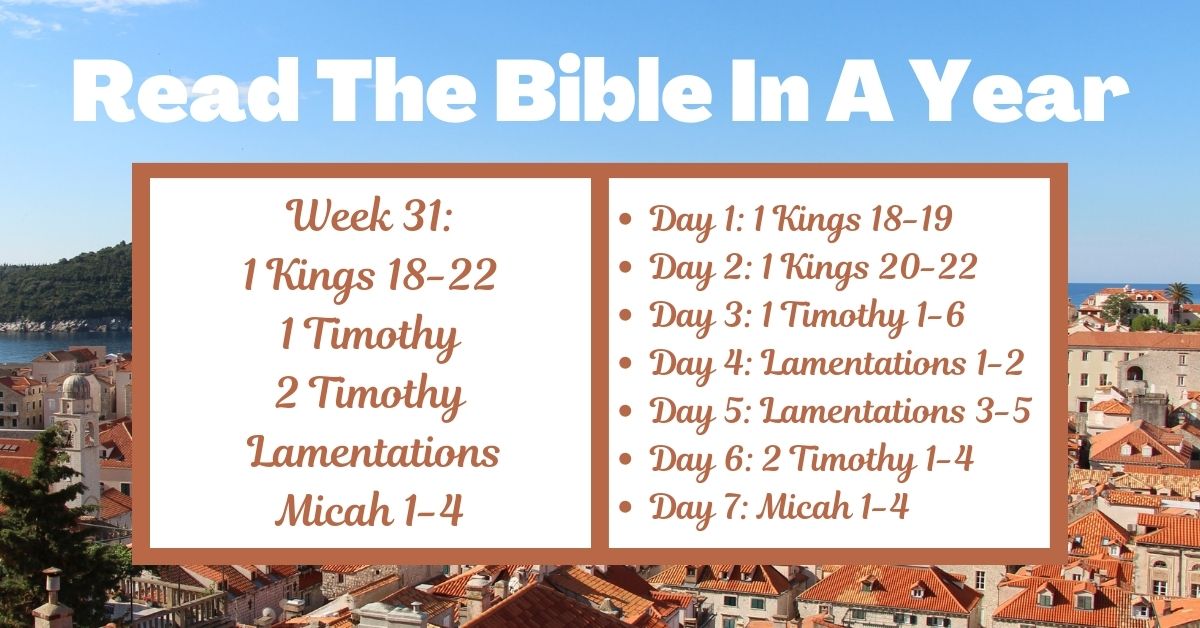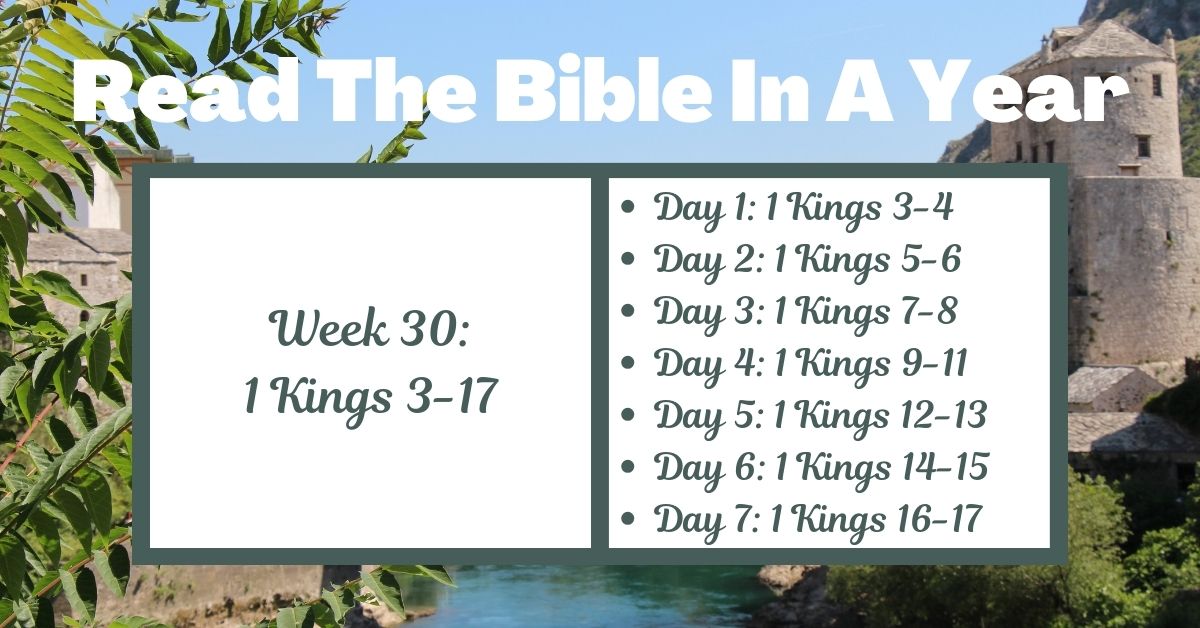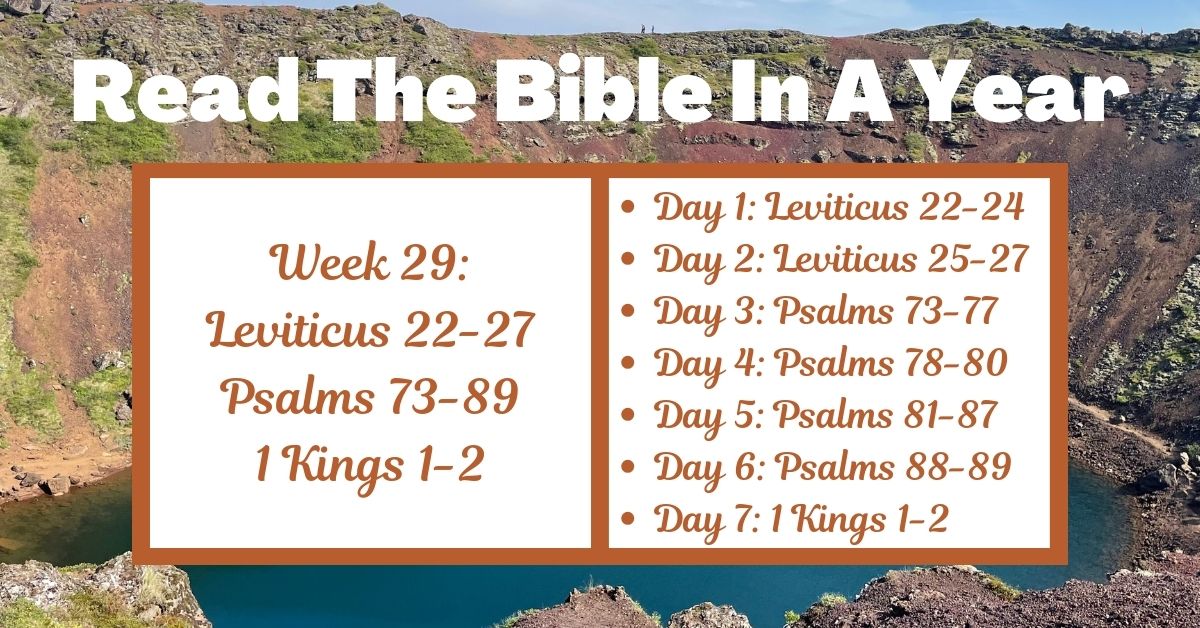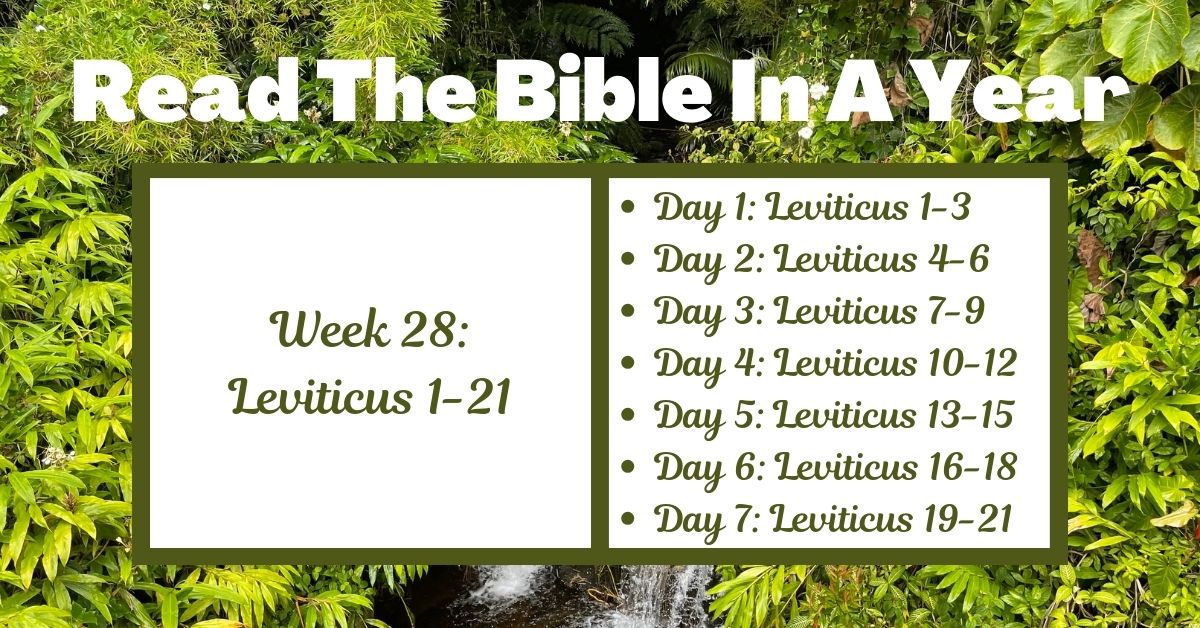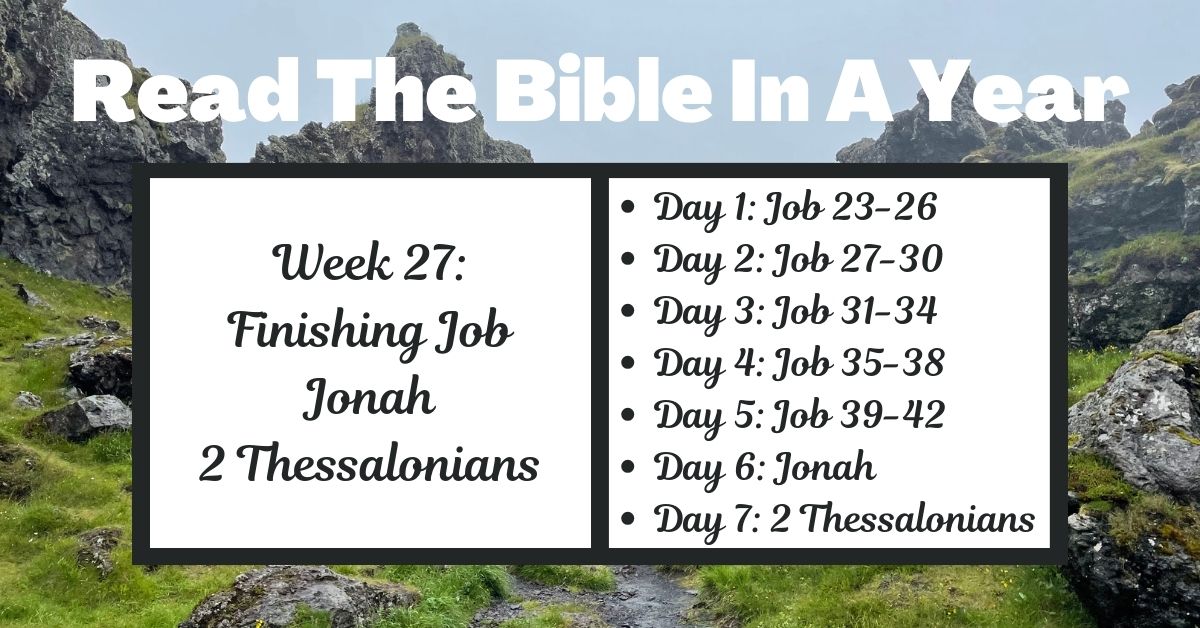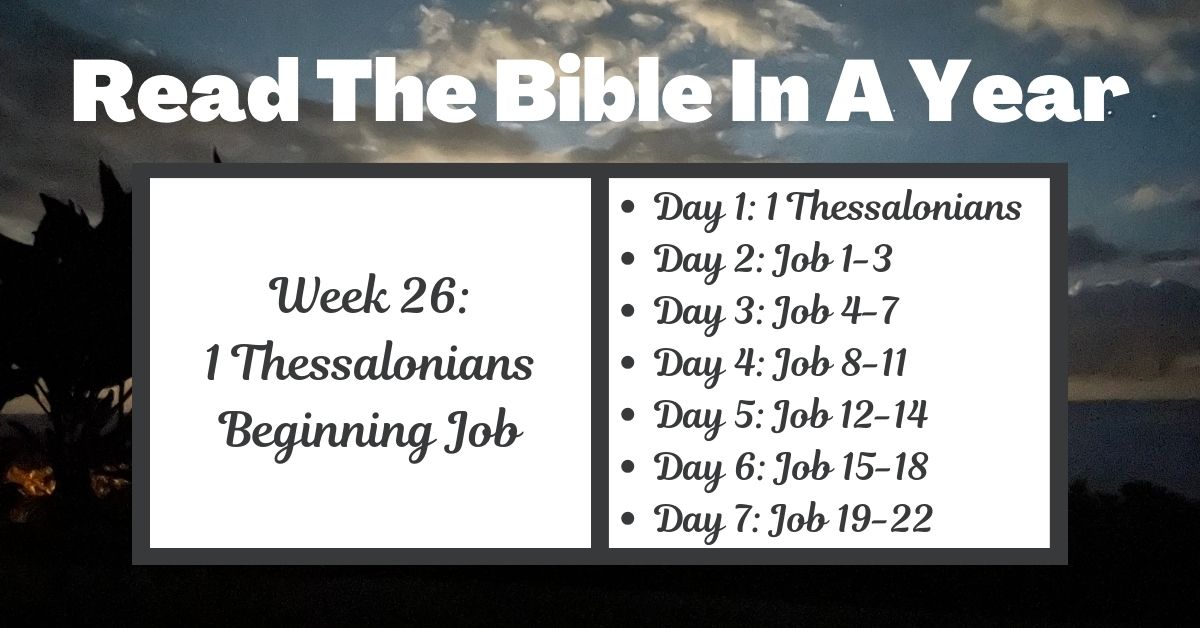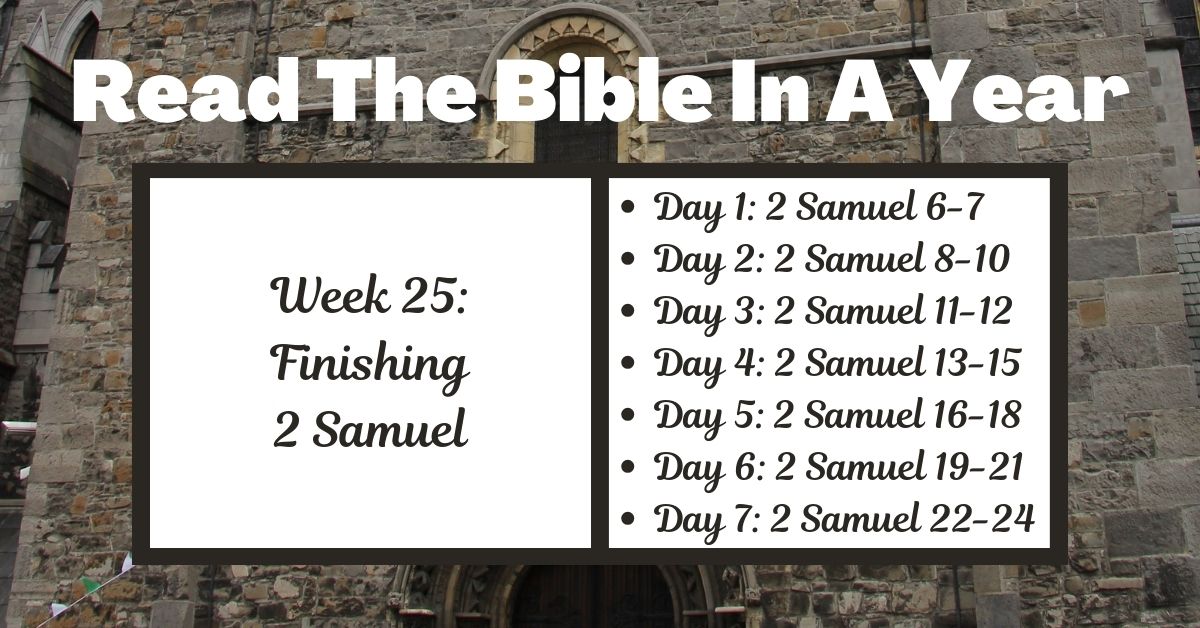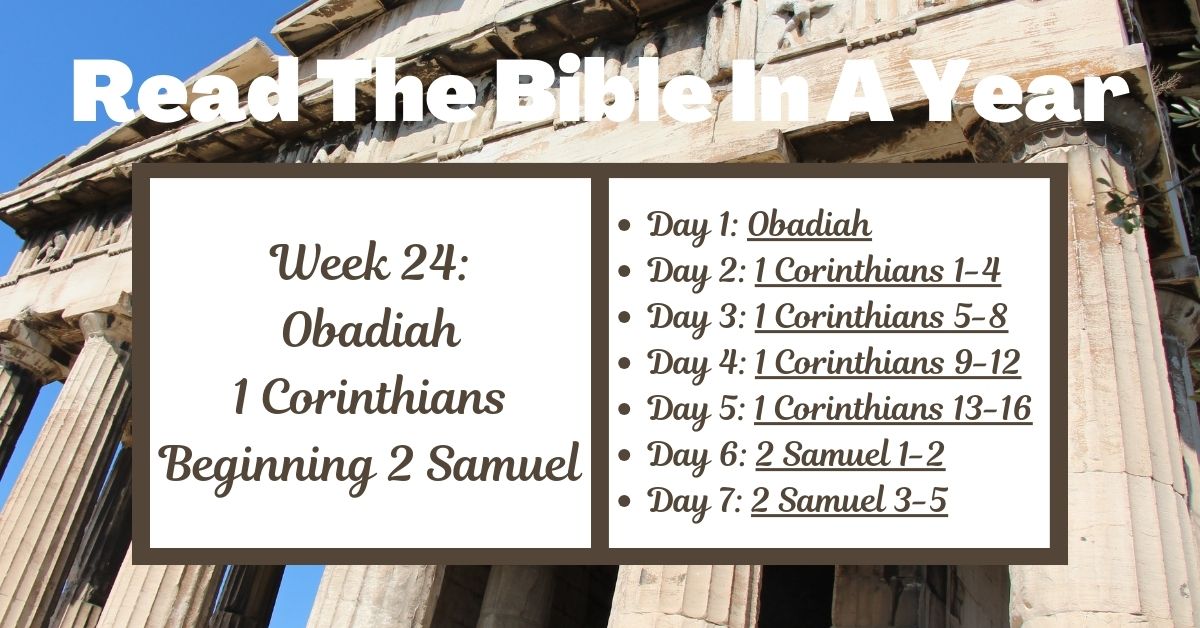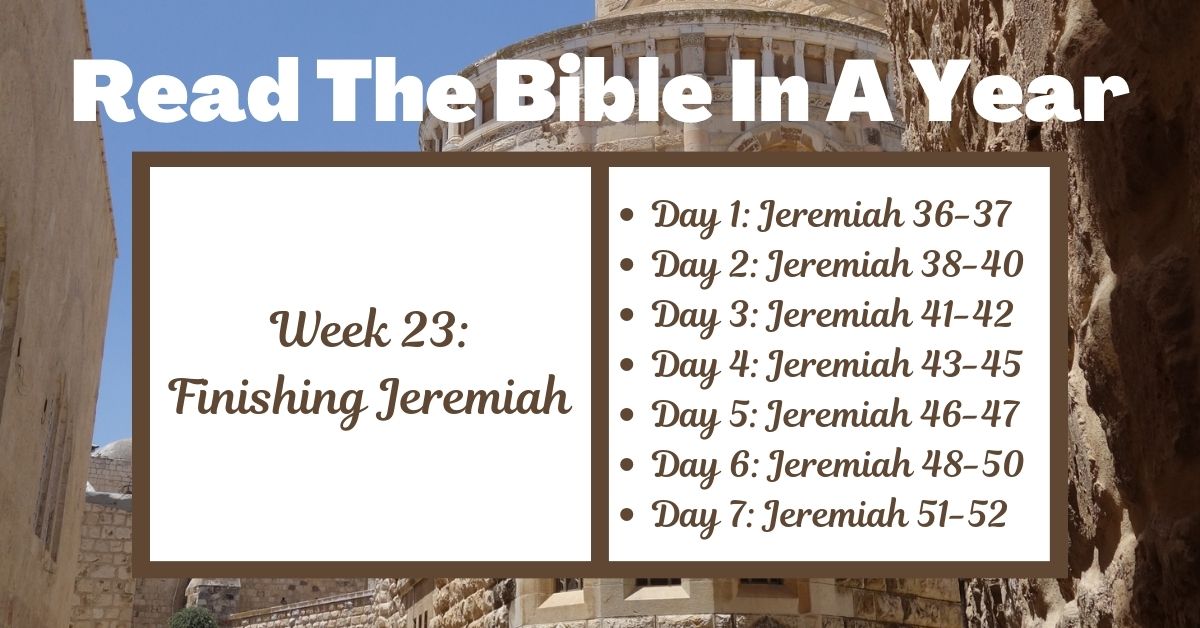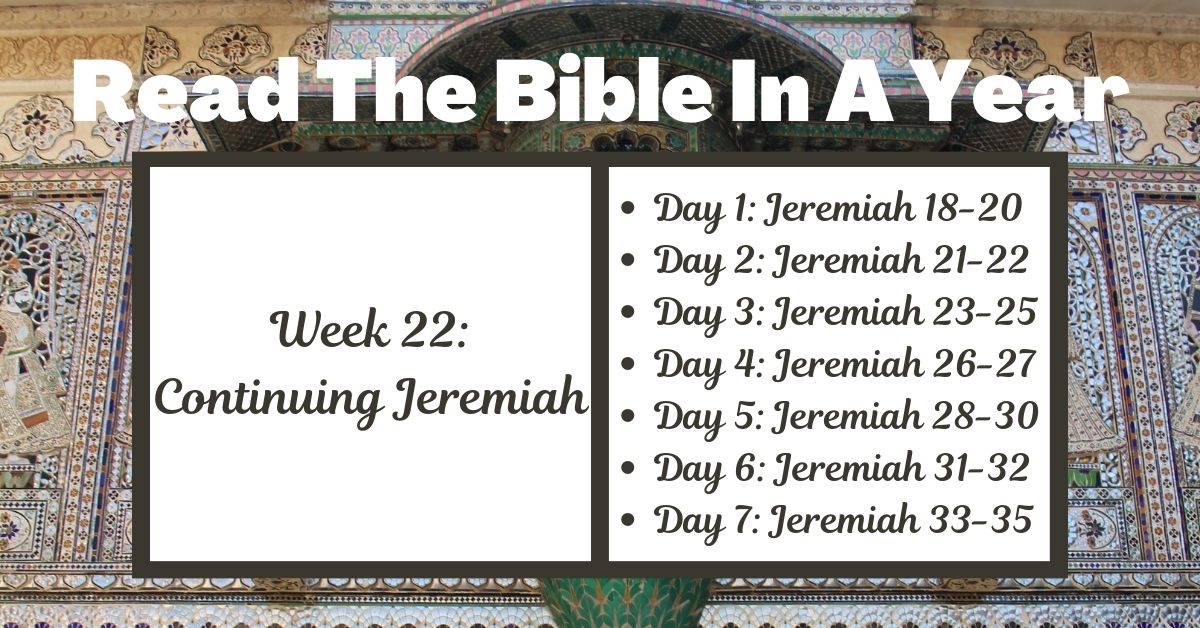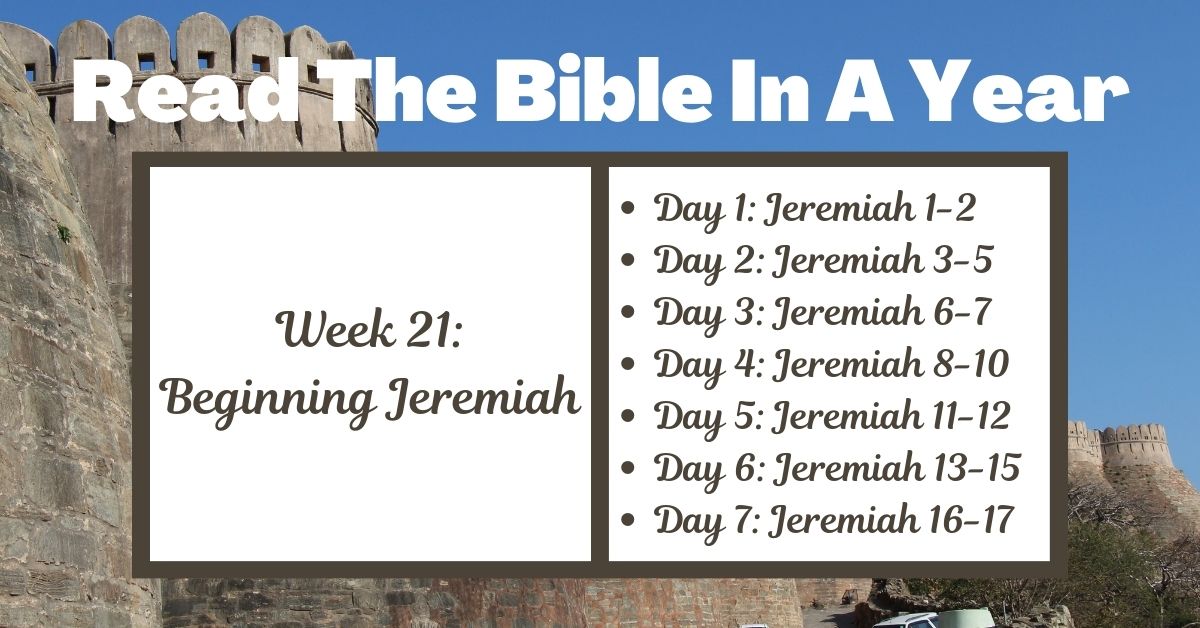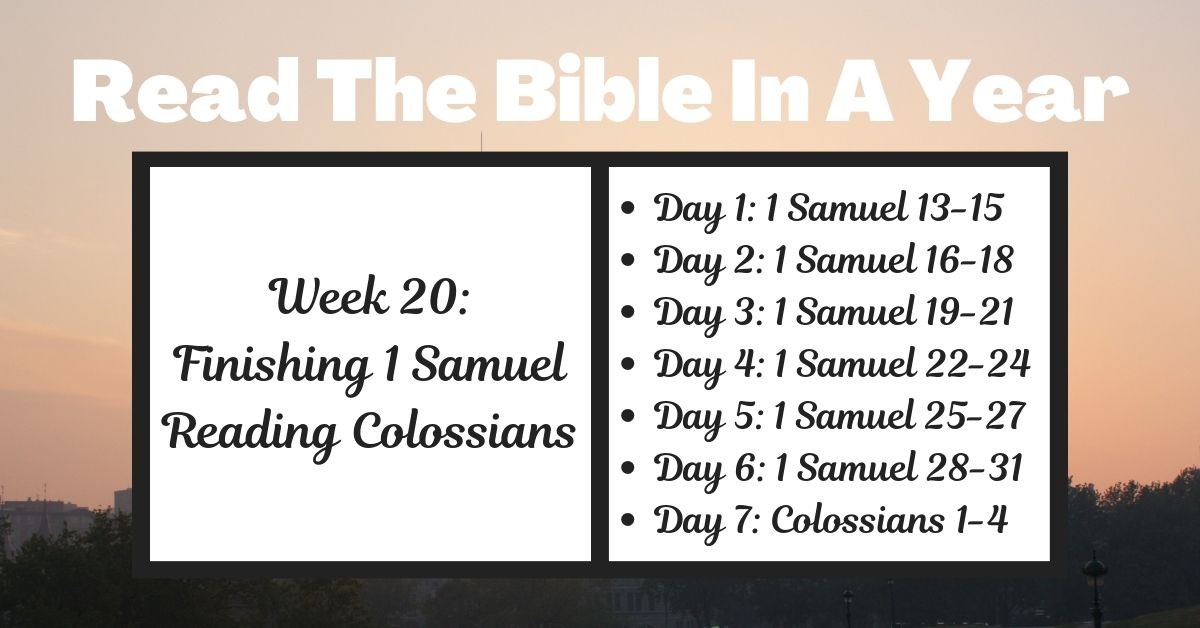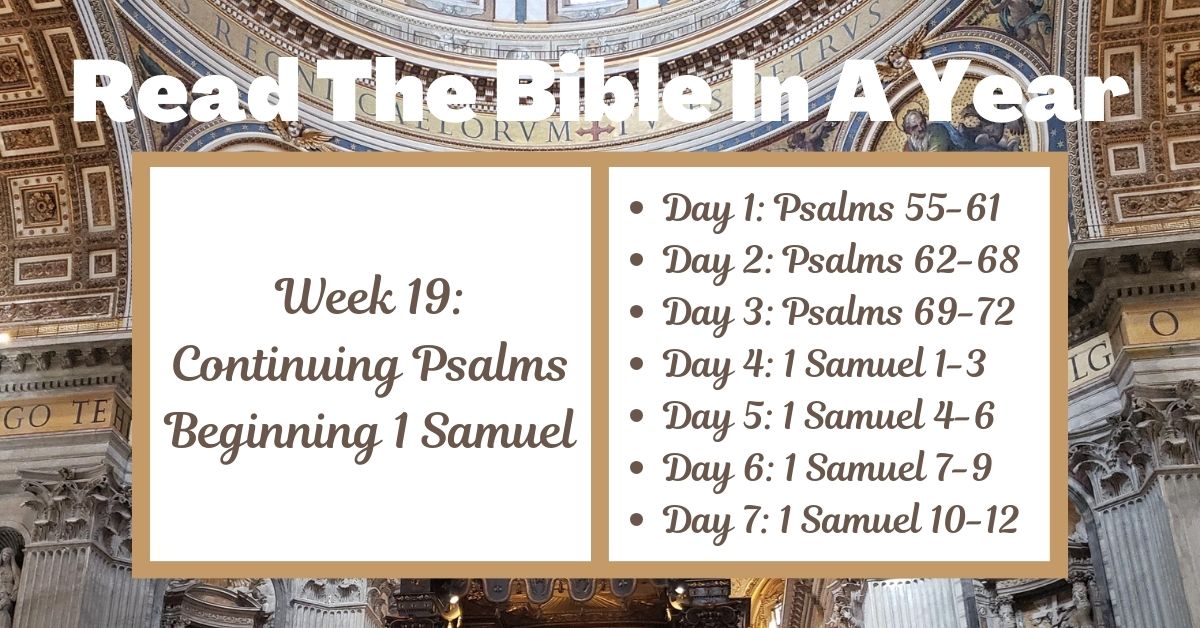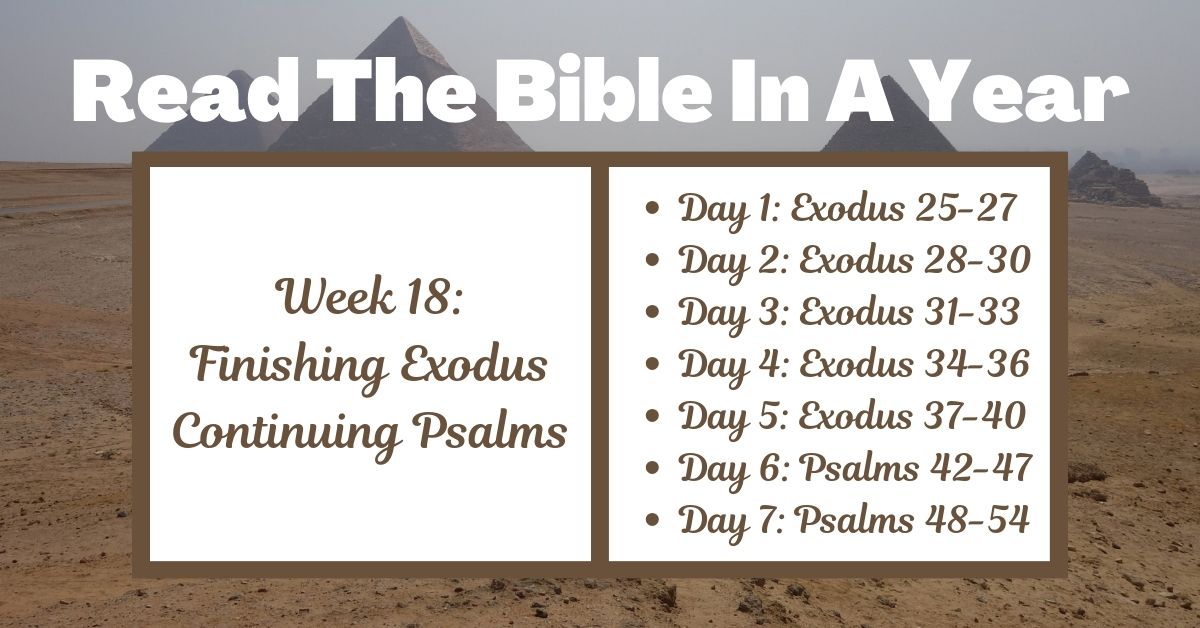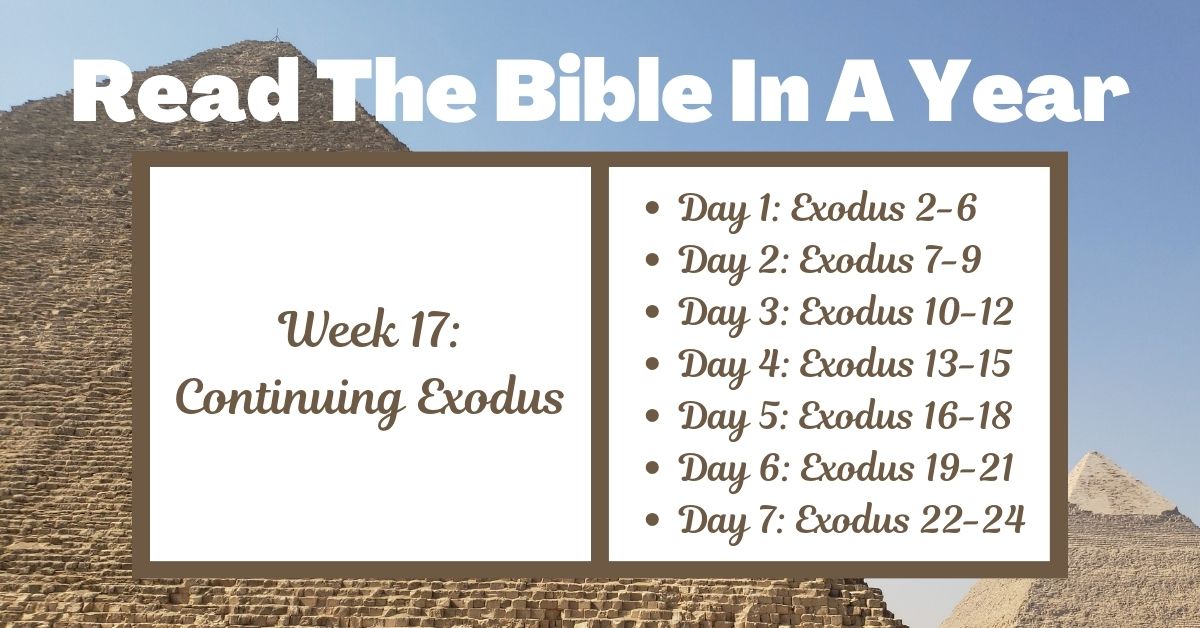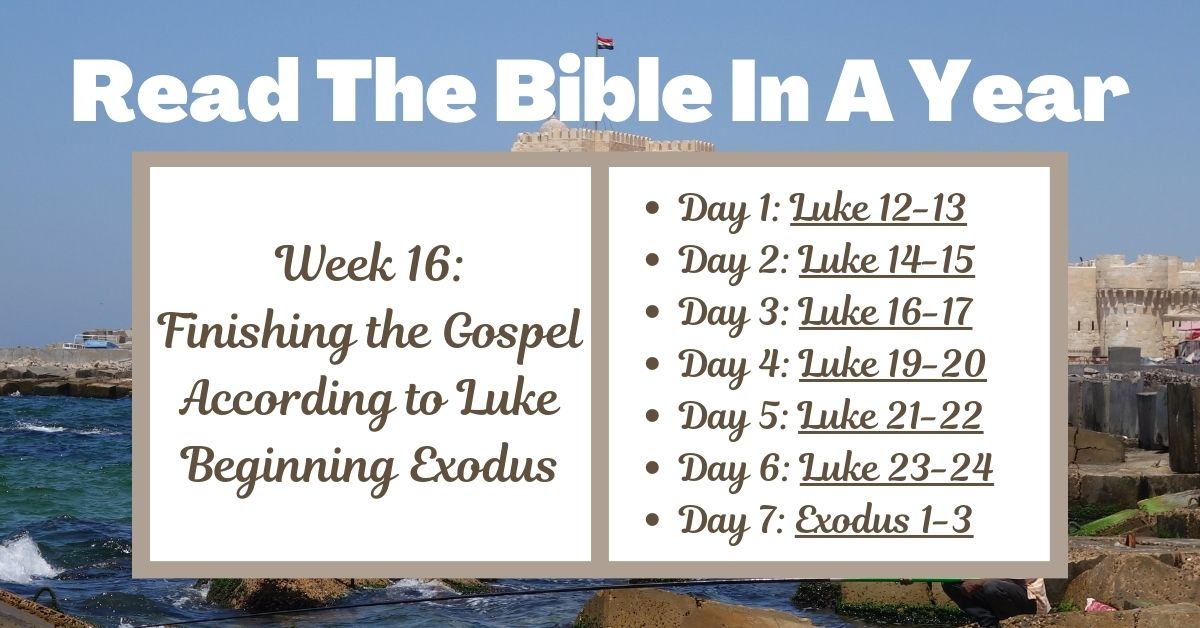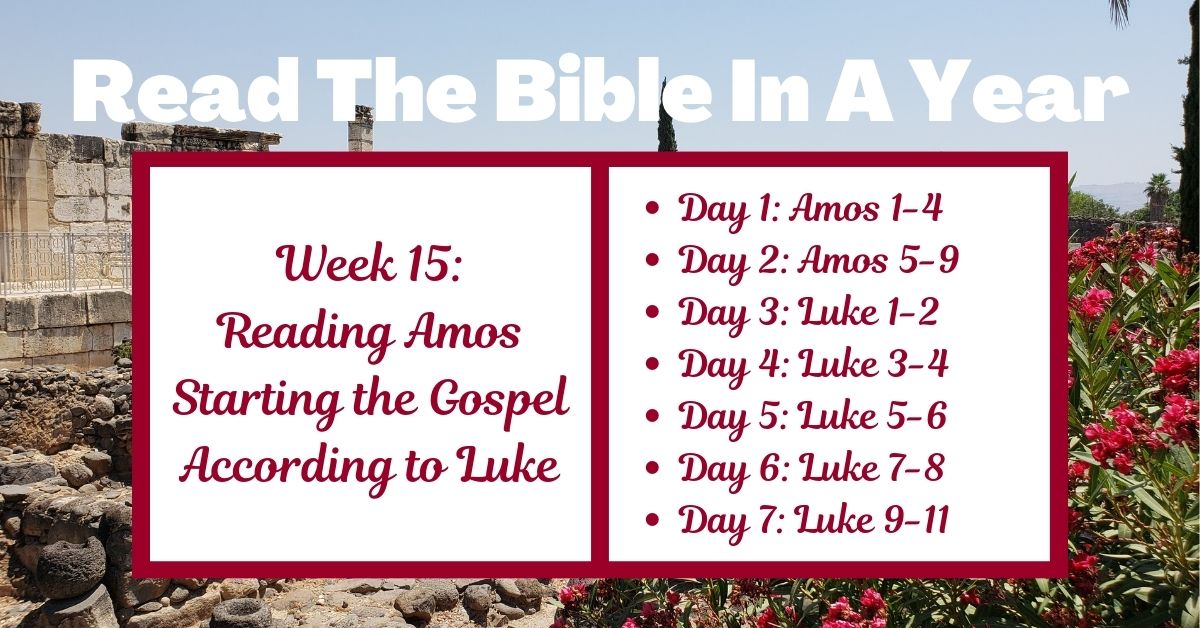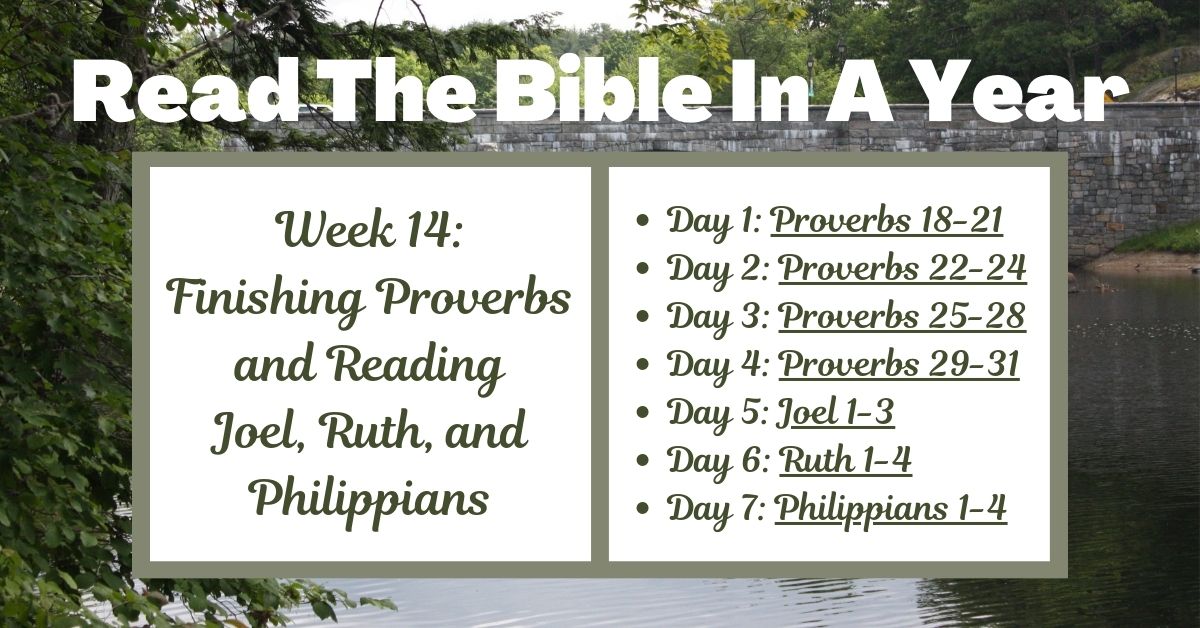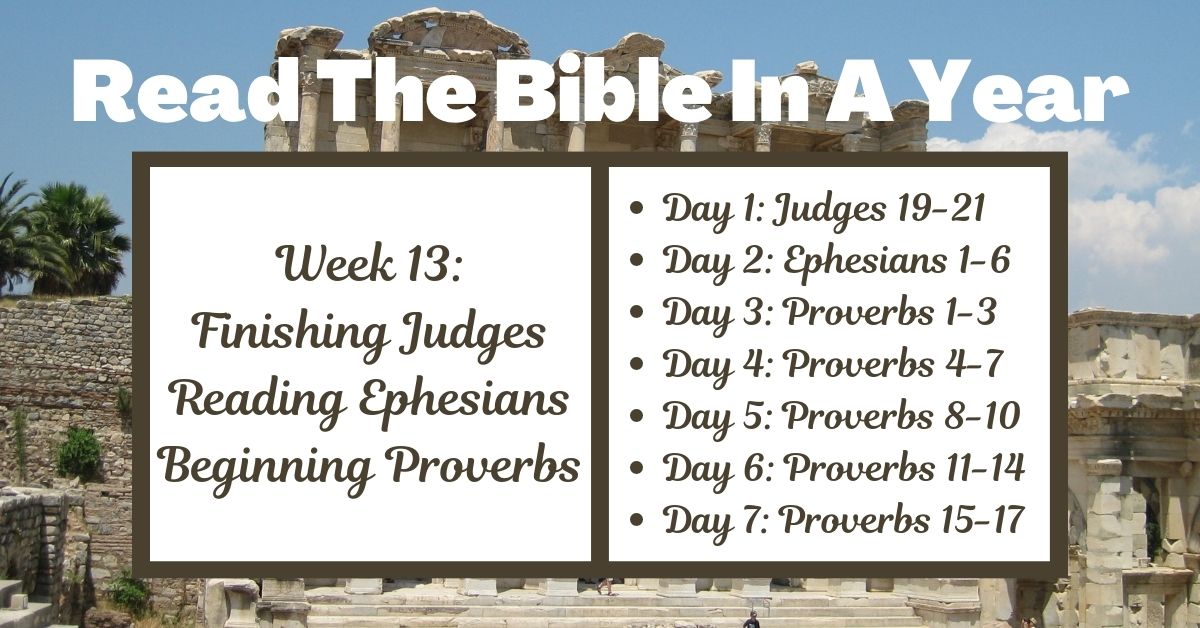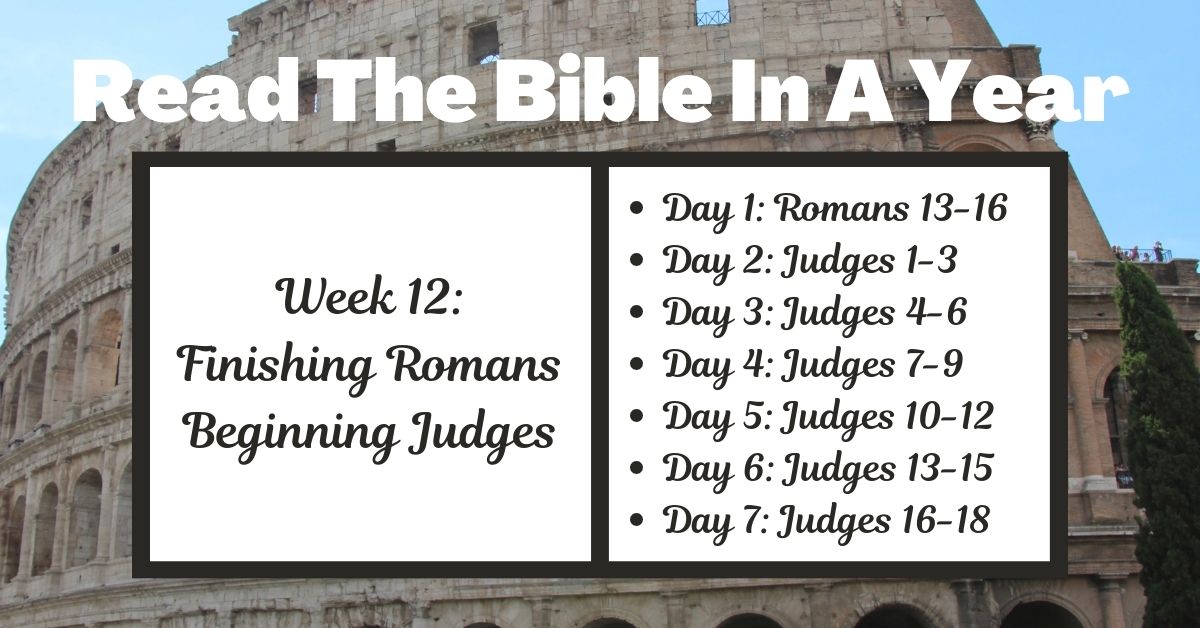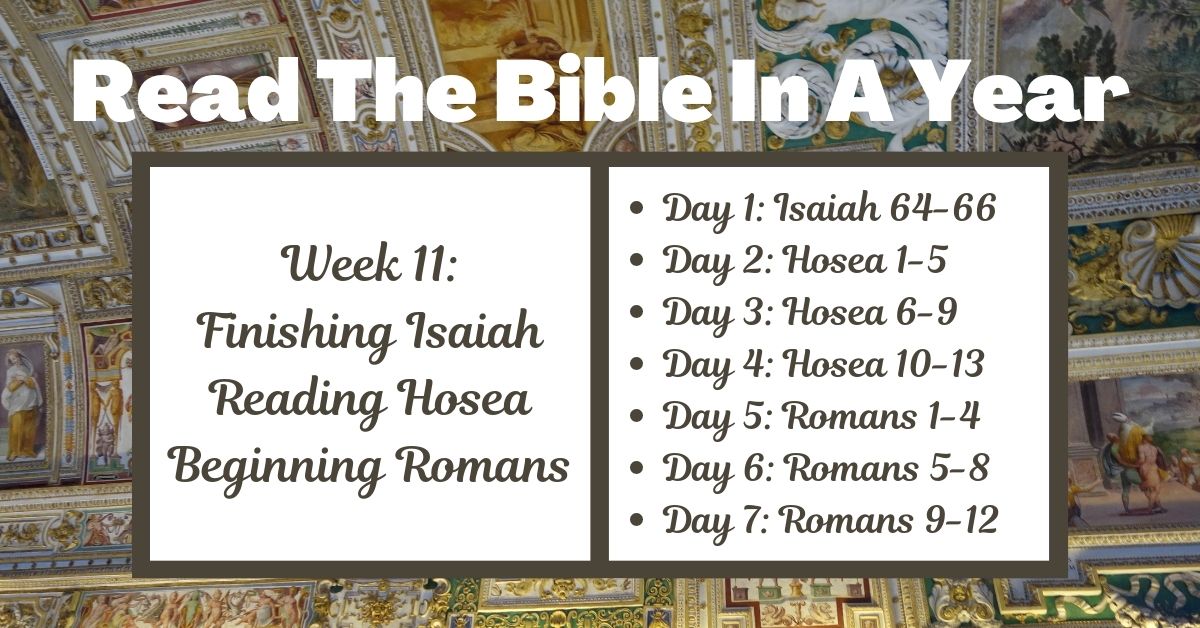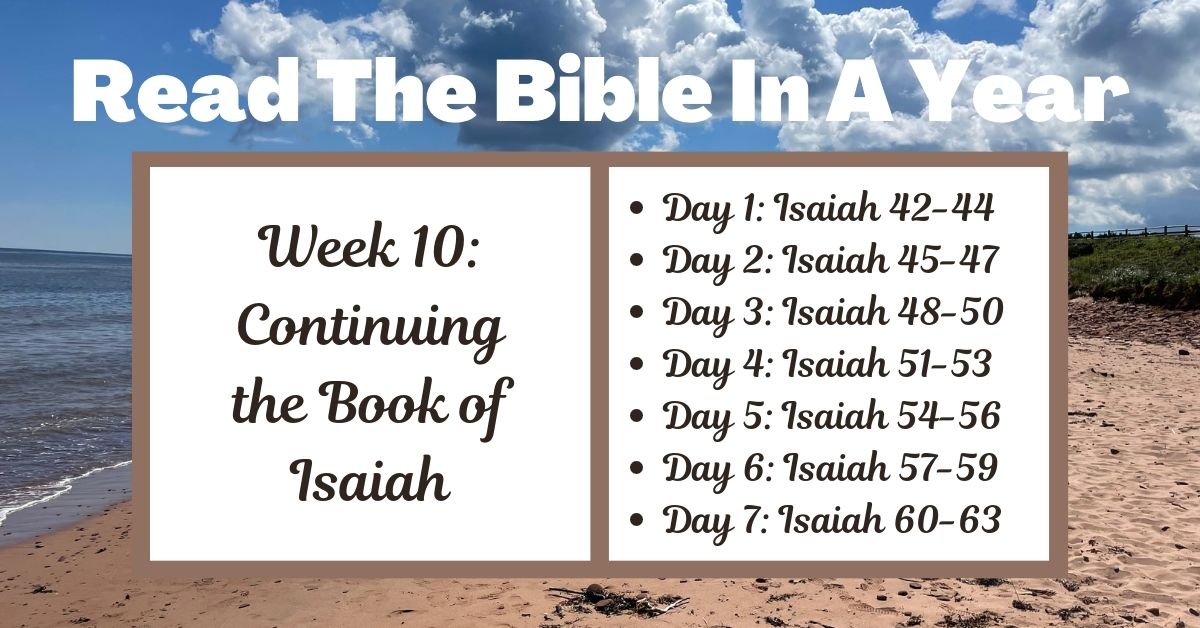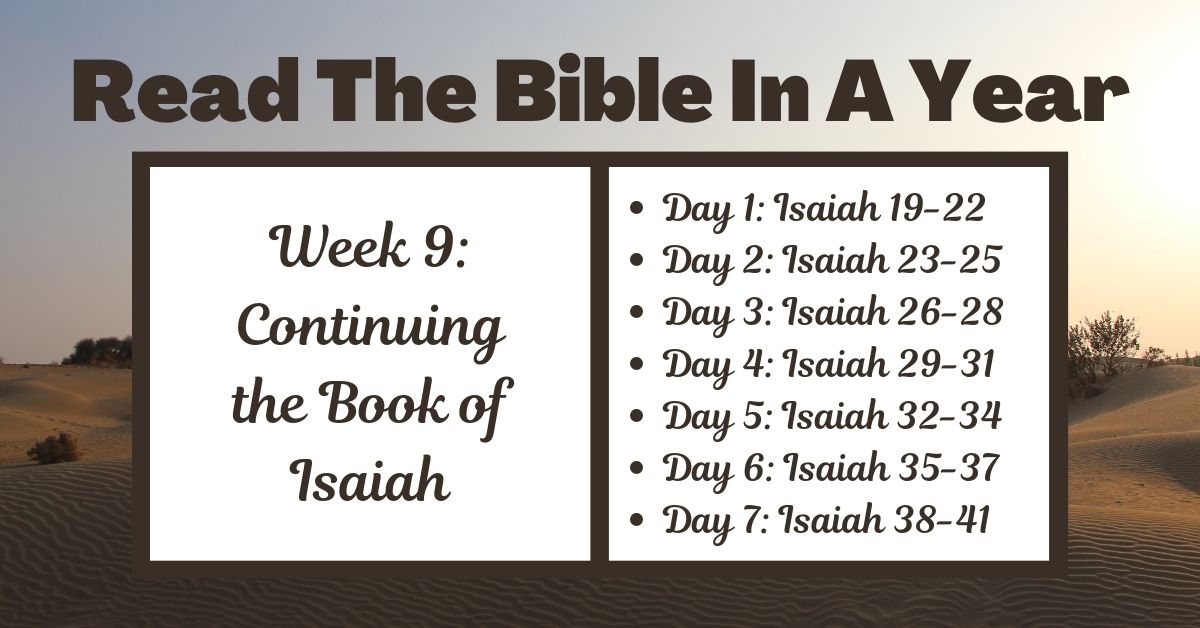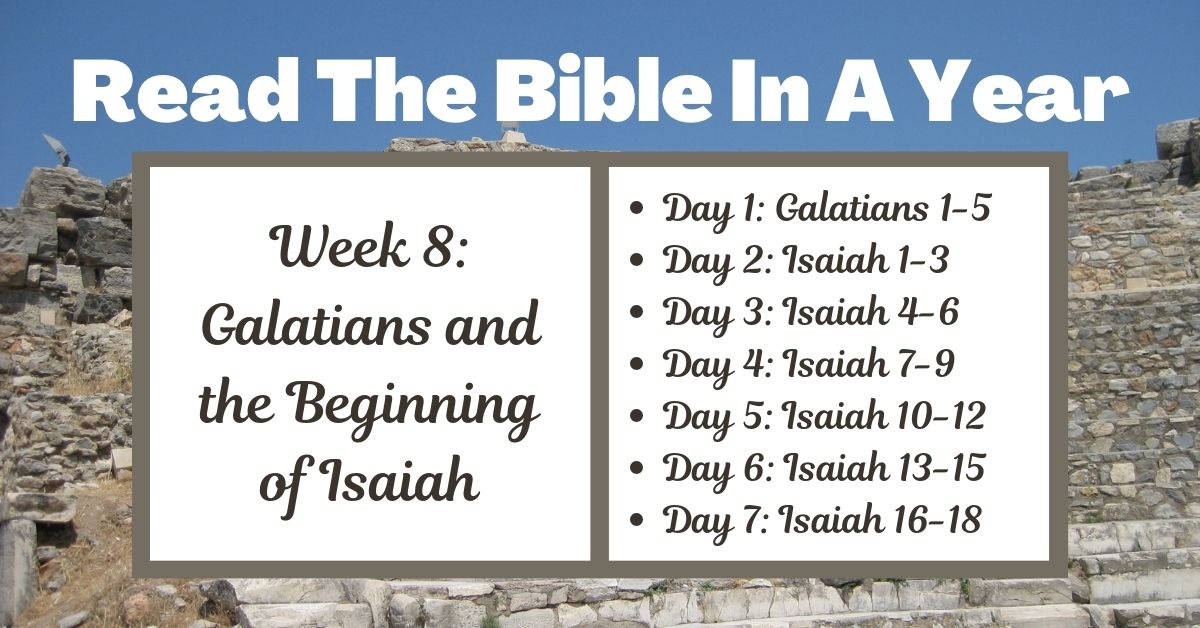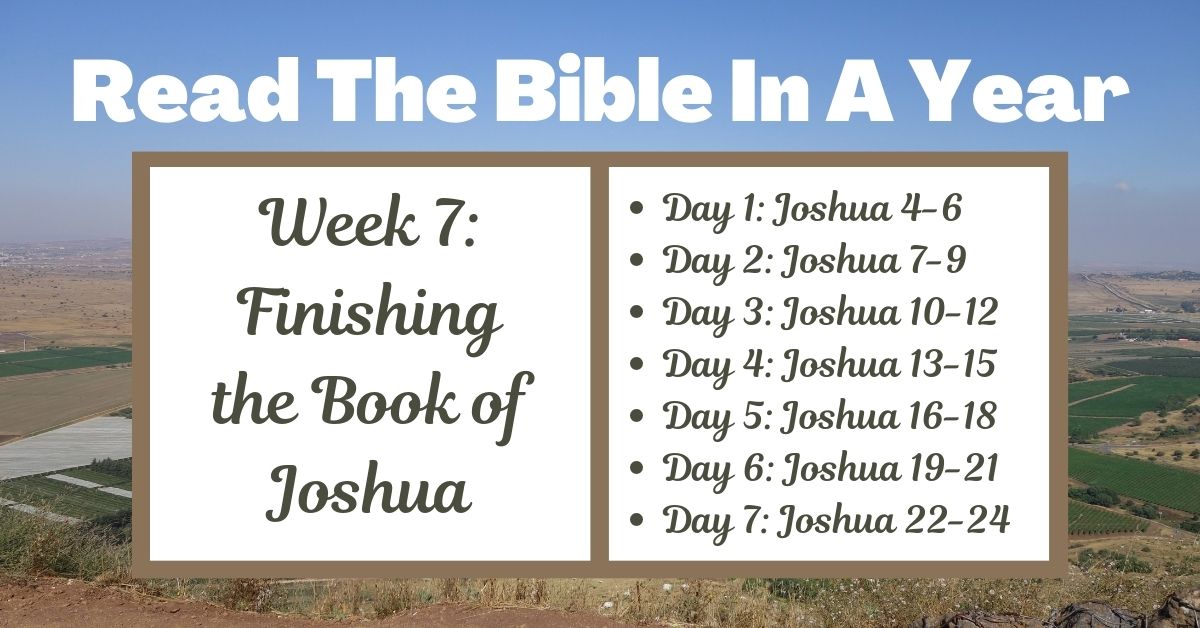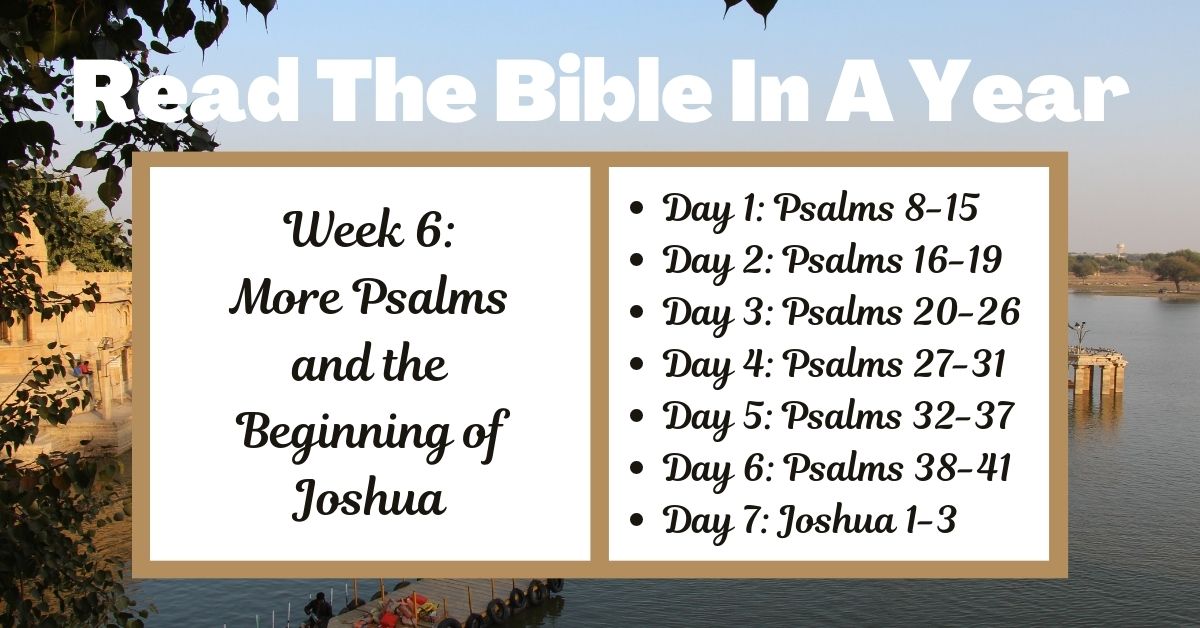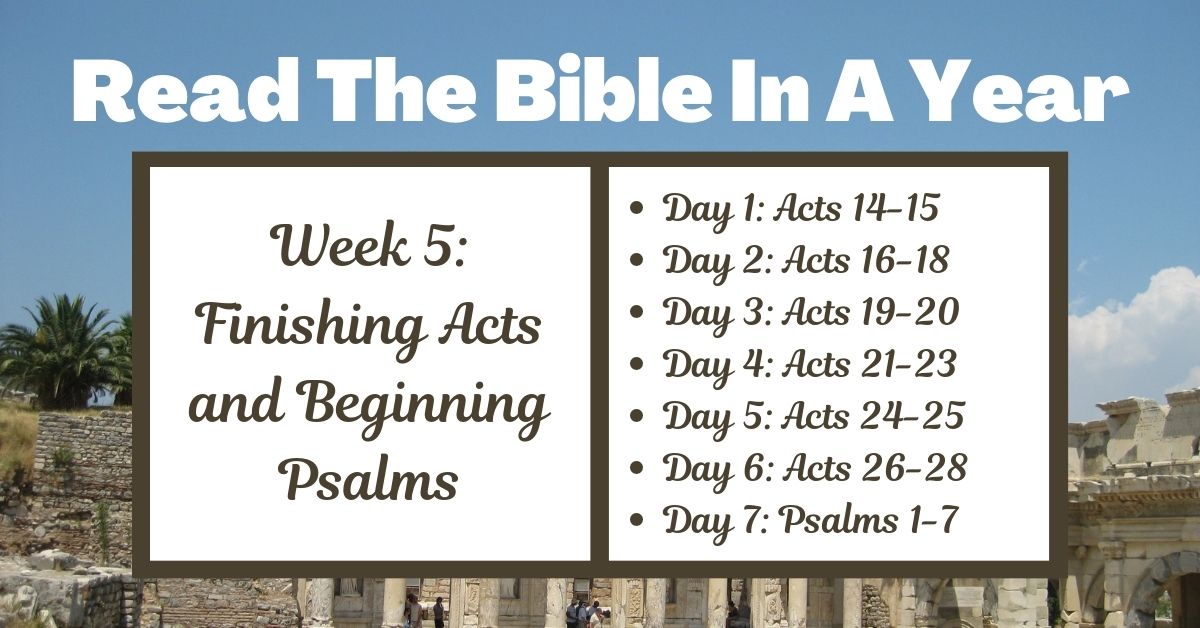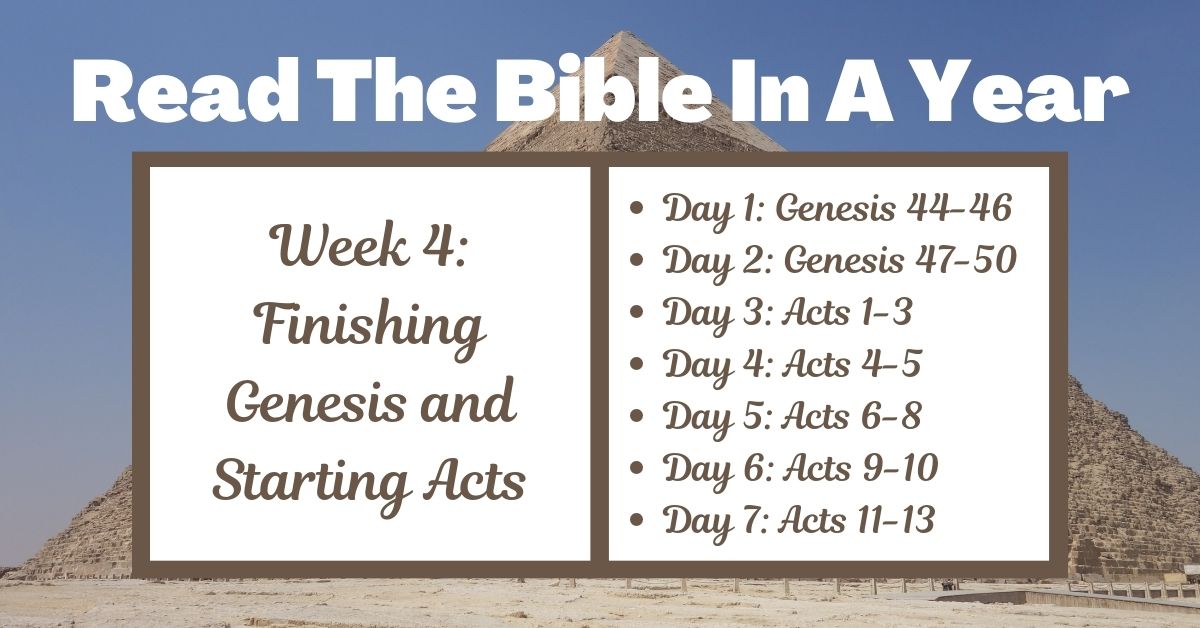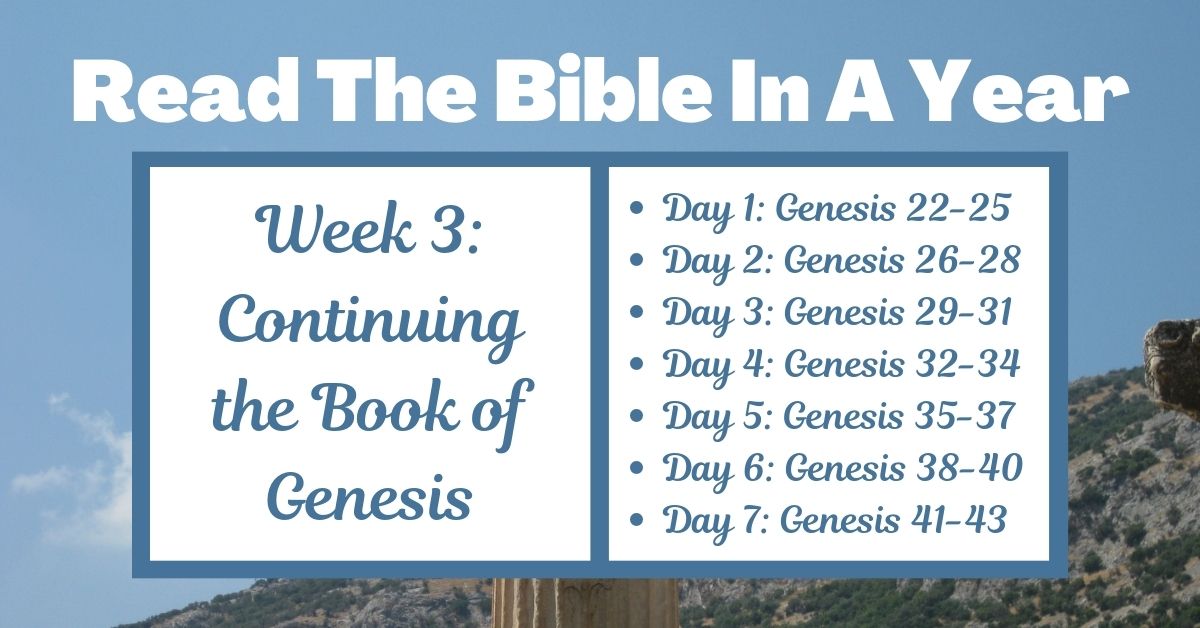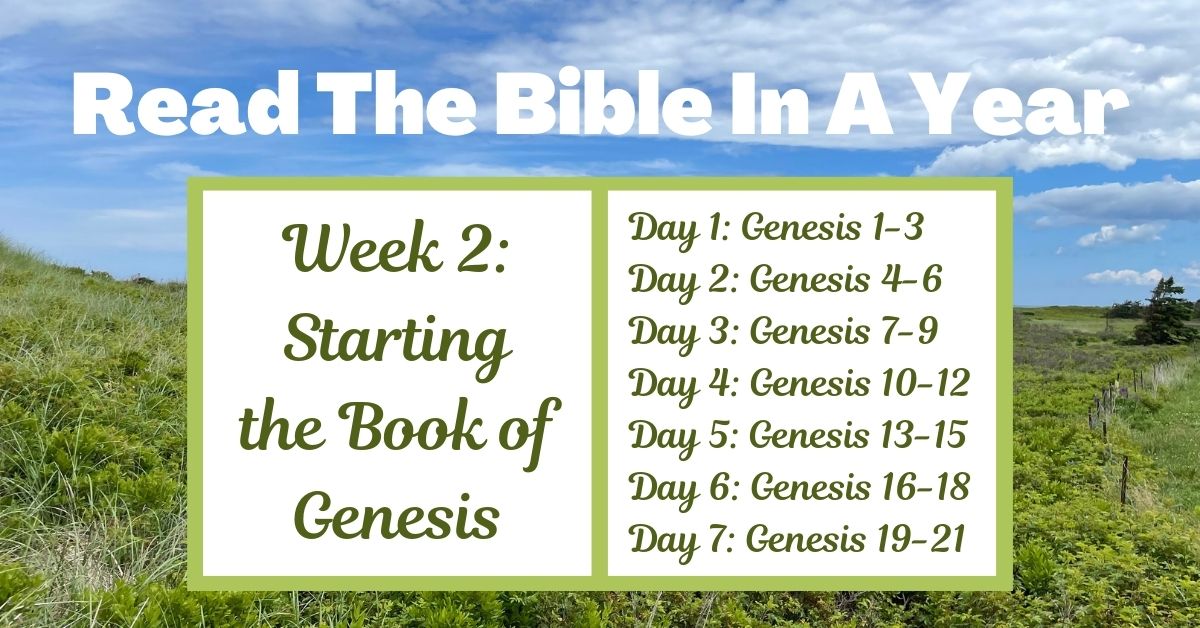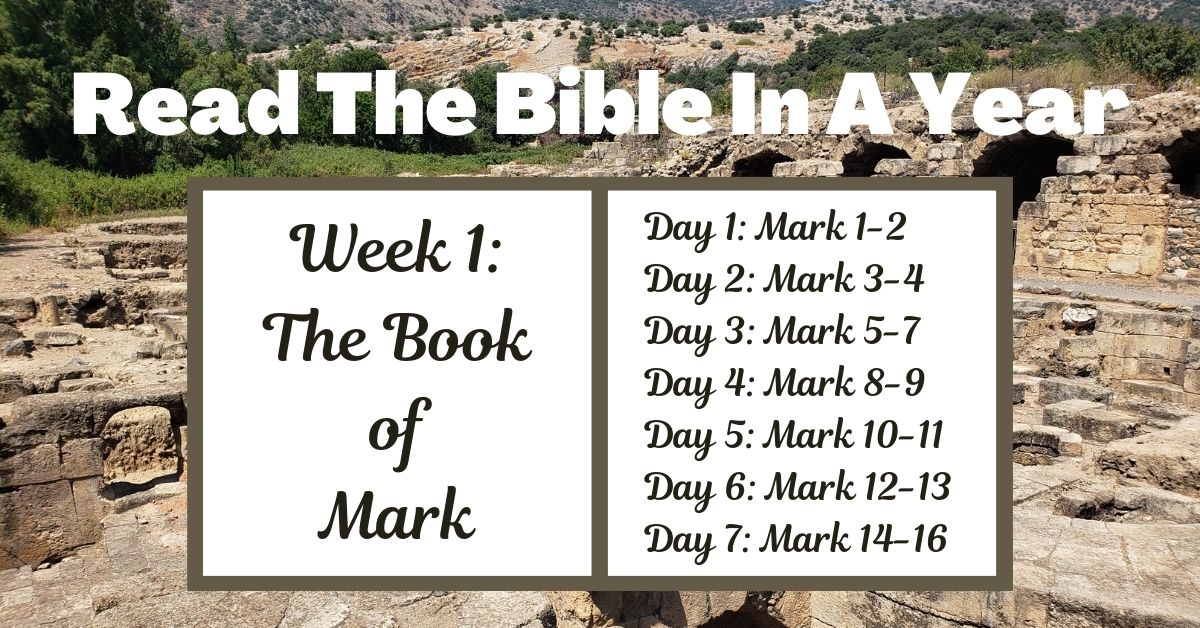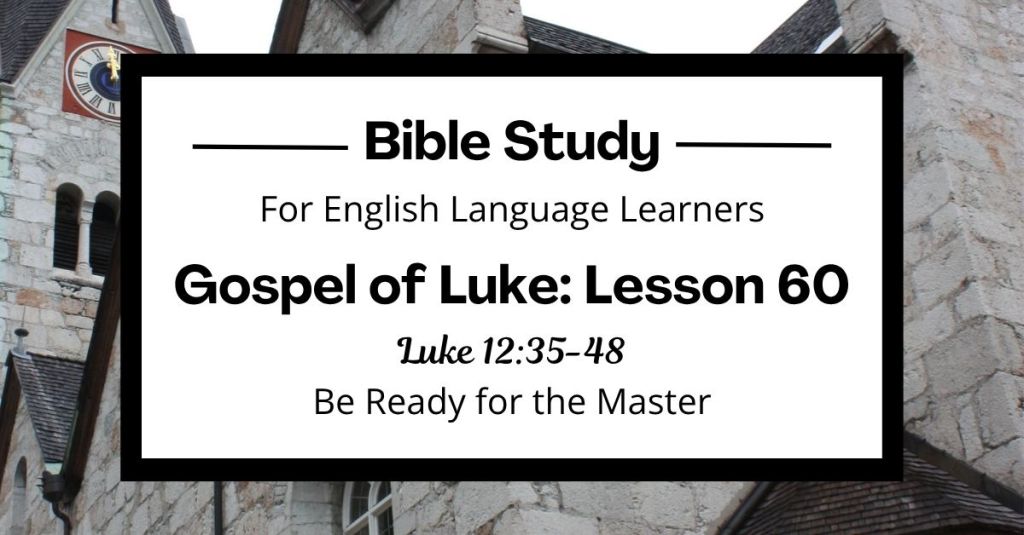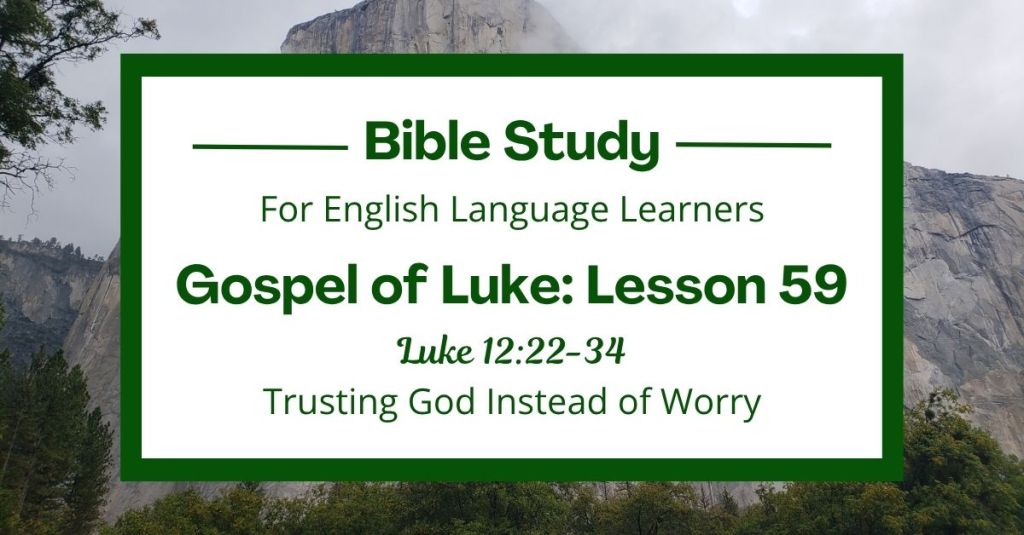As we continue to read through the Bible in a year, last week, we began the gospel of John and immersed ourselves in Jesus’ earthly ministry. This week, we will finish the book and see him transitioning towards his arrest, trial, and crucifixion. Spoiler alert: the end of the book will joyfully celebrate his resurrection and start the Christian movement of today.
From there, we will venture back into the Old Testament and read the first 13 chapters of 2 Kings. In these chapters, we will explore the history of the kingdoms of both Israel and Judah. Unfortunately, both sides will display plenty of disobedience towards God and we will begin to see the need for a savior. Isn’t it wonderful to know that Jesus has arrived and offers his salvation to all who will take it?
John 16-21
After reading the first 15 chapters of Jesus’ earthly ministry last week, in chapter 16 of the gospel of John, Jesus appears to be fully aware of challenges awaiting his disciples, and assures them of the impending arrival of the Holy Spirit, who will guide, comfort, and empower them after Jesus’ departure. This promise underlines the compassionate foresight of Jesus, revealing not only his role as a teacher but also as a caring shepherd deeply invested in the spiritual well-being of his flock.
Chapter 17 will give us a picture of the spiritual intimacy that Jesus enjoys with his father. In this heartfelt prayer, he expresses his desires for all of humanity to know and follow him and prays that his disciples will be able to carry out this ministry.
As the narrative continues, we will enter the heart-wrenching chapters of Jesus’ arrest, trial, and crucifixion. The humility displayed during his arrest, the unjust trial before Pilate, and the agonizing journey to Golgotha depict a sacrificial love that transcends human comprehension. The weight of Jesus’ proclamation, “It is finished,” will reverberate through the ages, signaling the fulfillment of a divine plan for redemption.
The final chapters will then usher in the glorious dawn of his resurrection, where Mary Magdalene will discover the empty tomb and Jesus will appear to his disciples. Jesus will dismantle doubt, bringing renewed hope into the hearts of his followers. These triumphant chapters will encapsulate the core of the Christian faith—the resurrection as the ultimate victory over death. Jesus will give his disciples a purpose that will start the true spread of this glorious hope!
2 Kings 1-13
Going back into the Old Testament, the book of 2 Kings will hint at the need for a savior. This book is a continuation of the historical narrative begun in 1 Kings and chronicles the history of the kingdoms of Israel and Judah. In these chapters, we will be presented with a theological perspective on the events and rulers during this time period and will see the consequences of obedience and disobedience to God’s covenant. Focusing on the reigns of various kings, this book will explore the recurring themes of prophetic intervention, dynastic changes, divine judgment, and the ultimate outcomes of the nations’ loyalty or rebellion.
In the first thirteen chapters of 2 Kings, readers will witness the transition from the prophet Elijah to Elisha as God’s chosen spokesperson. The narrative will unfold with the kings of Israel and Judah facing challenges both in political and spiritual nature. The actions of the prophet Elisha will become prominent, demonstrating the divine authority behind his ministry through miracles and acts of God’s power. These chapters will also depict the consequences of unfaithfulness, as the northern kingdom of Israel will encounter a series of tumultuous events, including a violent coup led by Jehu that will fulfill divine judgment against the house of Ahab. Throughout this section, readers will be reminded of the ongoing interplay between human choices and divine intervention, setting the stage for the broader historical and political developments explored in the subsequent chapters of 2 Kings.
Flexible Plan: Reading for Week 33
If you are following the flexible plan for reading the Bible in a year, here is your reading assignment. You can break up the reading however you like throughout the week!
- Passage 1: John 16-21
- Passage 2: 2 Kings 1-13
Printable Resource: Bible in a Year Reading Plan: Weekly Assignments
7-Day Reading Assignment: Week 33
For those who prefer a more organized approach, the weekly assignment can be broken into seven sections:
- Day 1: John 16-18
- Day 2: John 19-21
- Day 3: 2 Kings 1-2
- Day 4: 2 Kings 3-5
- Day 5: 2 Kings 6-8
- Day 6: 2 Kings 9-11
- Day 7: 2 Kings 12-13
Printable Resource: Bible in a Year Reading Plan: Daily Assignments
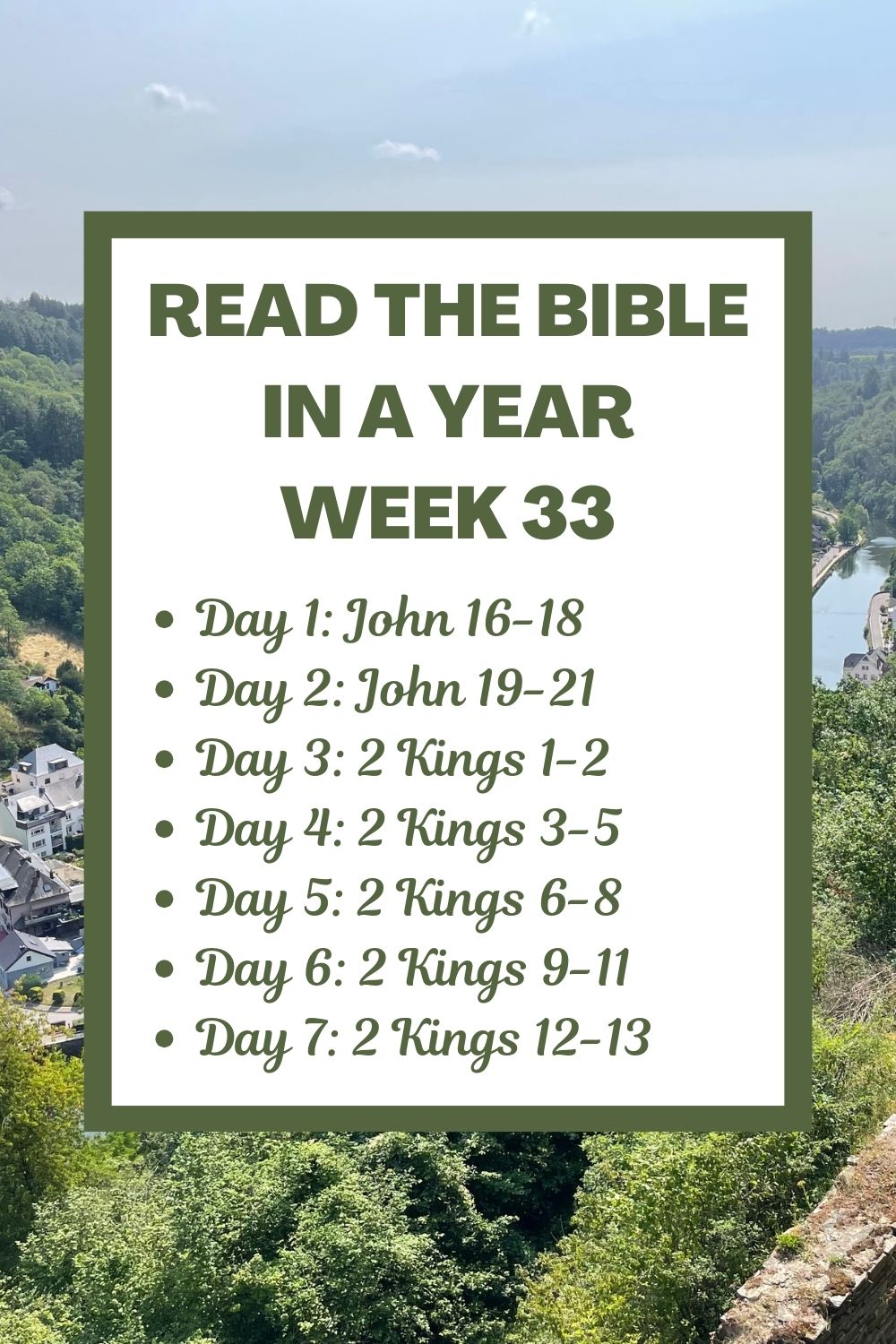
5-Day Reading Assignment: Week 33
Or if you know that you are likely to miss a day or two of reading, the weekly assignment can be broken into five sections:
- Day 1: John 16-18
- Day 2: John 19-21
- Day 3: 2 Kings 1-5
- Day 4: 2 Kings 6-9
- Day 5: 2 Kings 10-13
Printable Resource: Bible in a Year Reading Plan: 5 Days/Week Assignments
Reflection Questions
After you read John and 2 Kings, consider the following reflection questions:
John 16-21
- How does Jesus’ knowledge of the challenges ahead for his disciples show his care and foresight as a leader?
- Why is the promise of the Holy Spirit significant for the disciples, and how can it relate to your own spiritual journey?
- In Jesus’ prayer in John 17, what does his desire for humanity reveal, and how can you align your desires with his?
- How does Jesus’ sacrificial love during his arrest, trial, and crucifixion go beyond human understanding, and what impact does his proclamation, “It is finished,” have on your understanding of redemption?
- Reflect on the events of Jesus’ resurrection. How does the empty tomb and his appearances to the disciples dispel doubt and bring renewed hope? What does the resurrection mean as the core of the Christian faith?
2 Kings 1-13
- How does the Book of 2 Kings suggest the need for a savior through its events and rulers?
- Reflect on the outcomes of obedience and disobedience to God’s covenant in 2 Kings. How do these outcomes shape the story of Israel and Judah, and what lessons can be applied to your life?
- Explore the repeated themes of prophetic intervention, dynastic changes, and divine judgment in 2 Kings. How do these themes contribute to the book’s theological perspective, and what relevance do they have for believers today?
- Consider the shift from Elijah to Elisha in the first thirteen chapters. How does Elisha’s ministry demonstrate divine authority, and in what ways can a chosen spokesperson influence a nation?
- Reflect on the consequences of unfaithfulness in the narrative, such as Jehu’s coup. How does this illustrate the interplay between human choices and divine intervention, and what lessons can be learned for our own choices and actions?
Subscribe
If you enjoyed this post and wish to receive more Christian content, feel free to subscribe to my newsletters!
Related Resources
Visit the Joyful Moments in Christ homepage for all posts, or scroll through other blog posts related to reading the Bible in a year:
